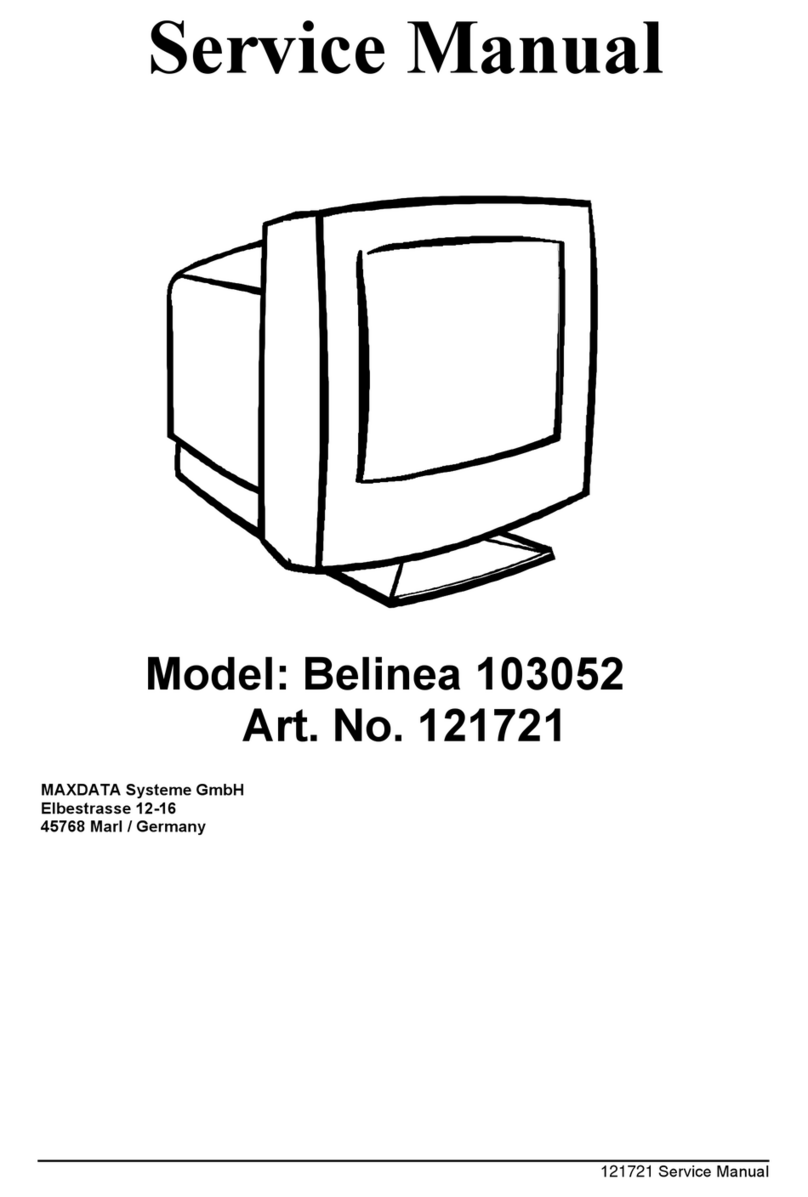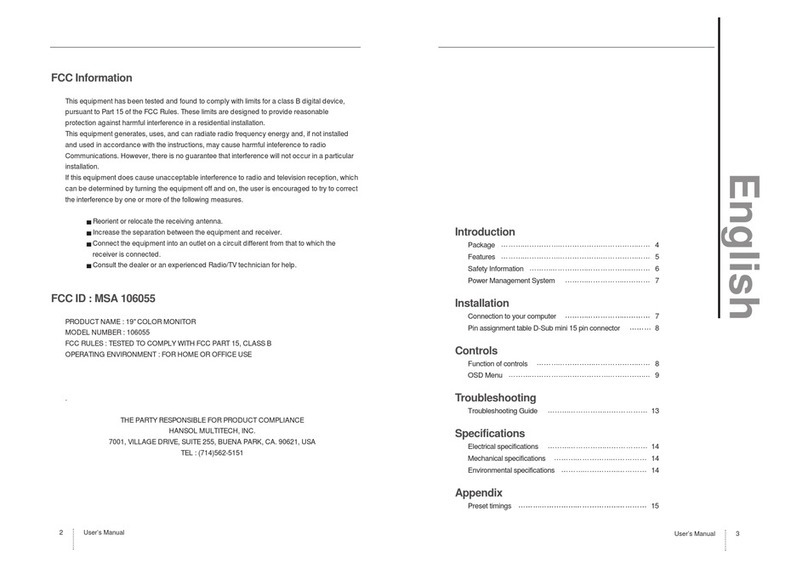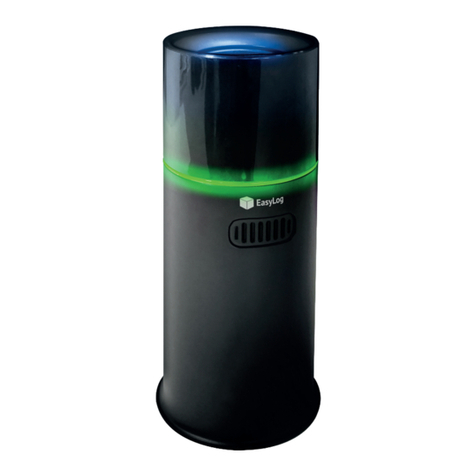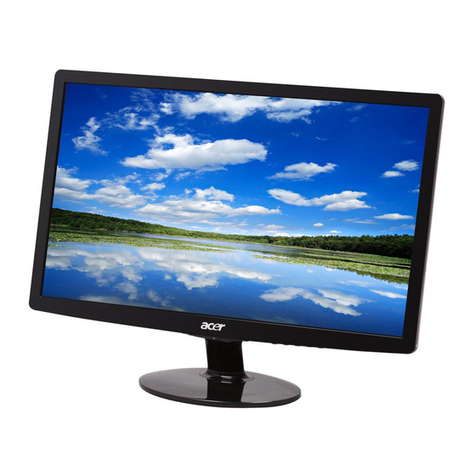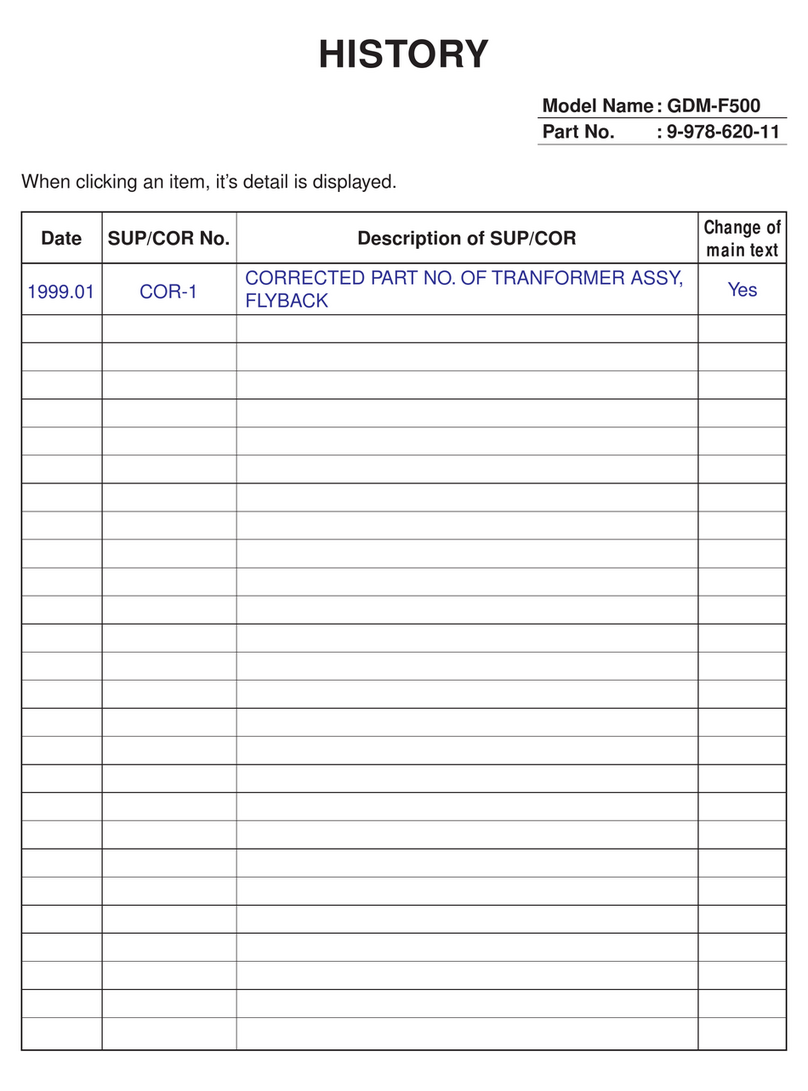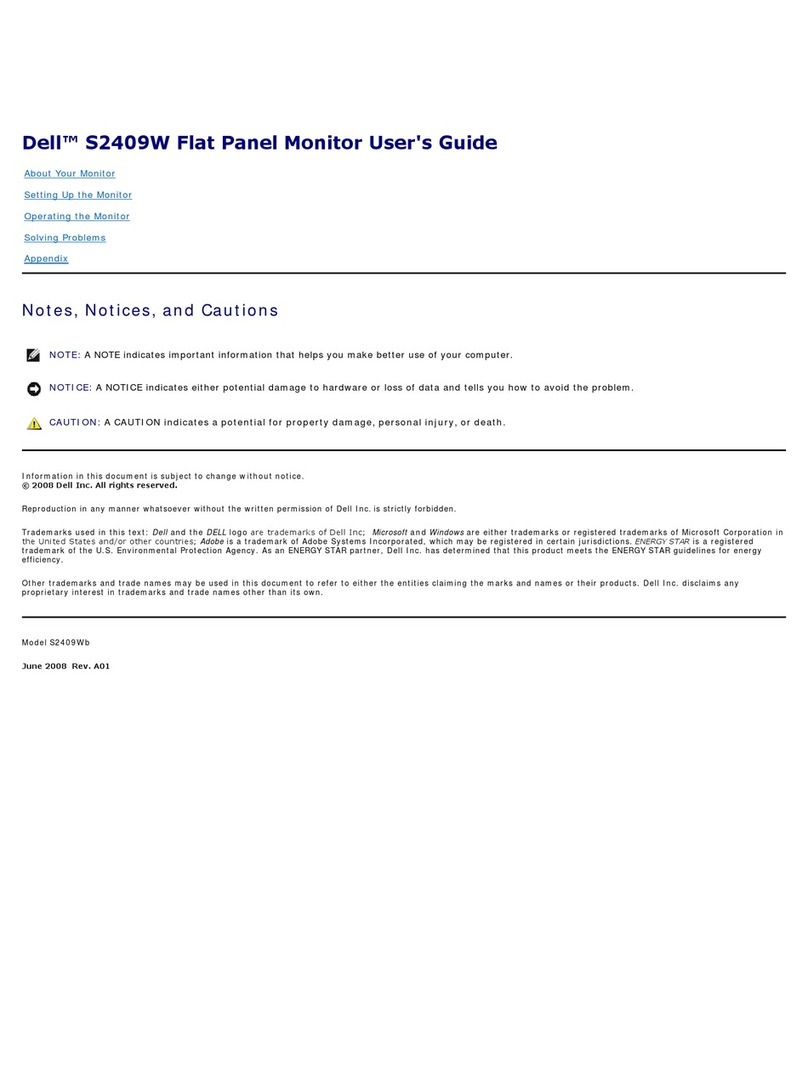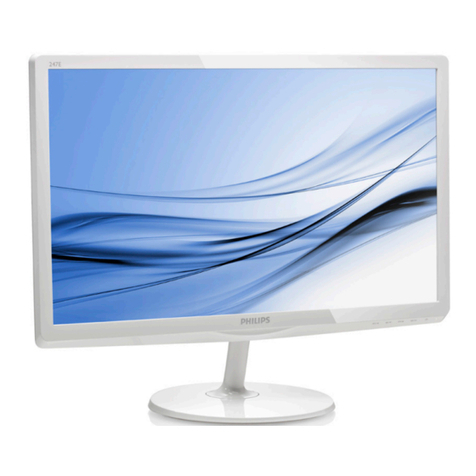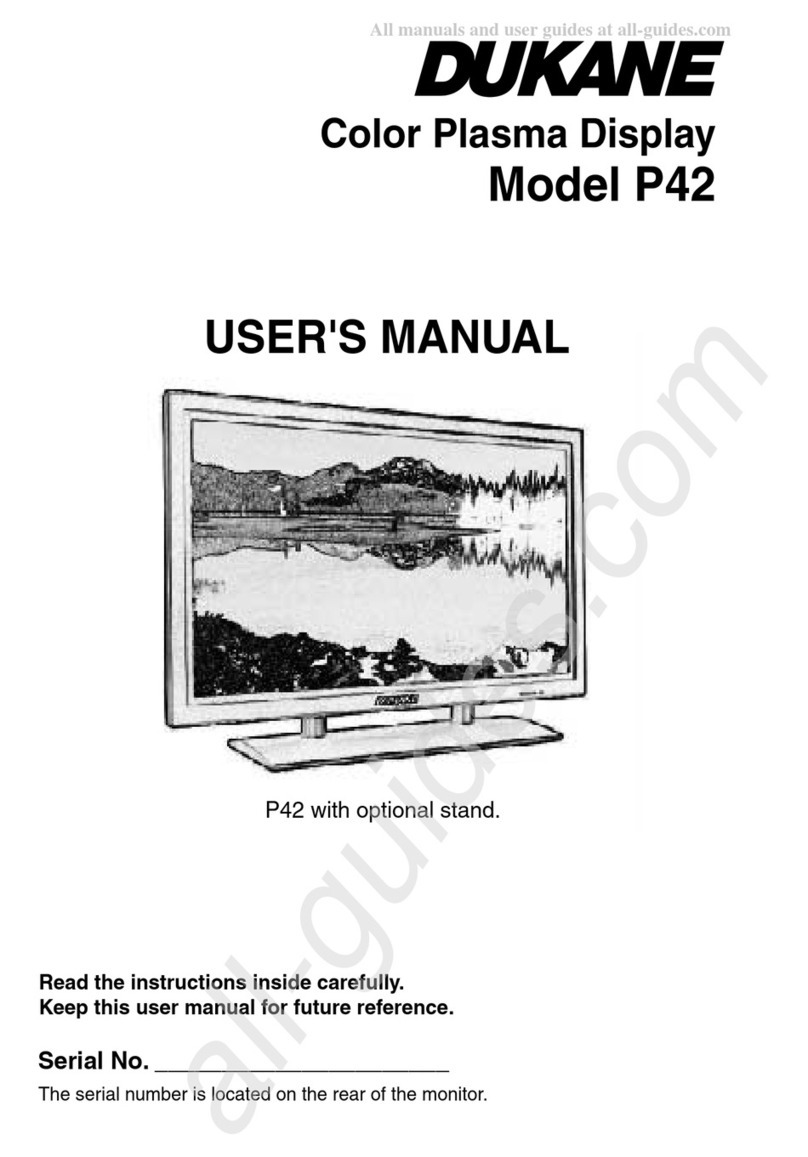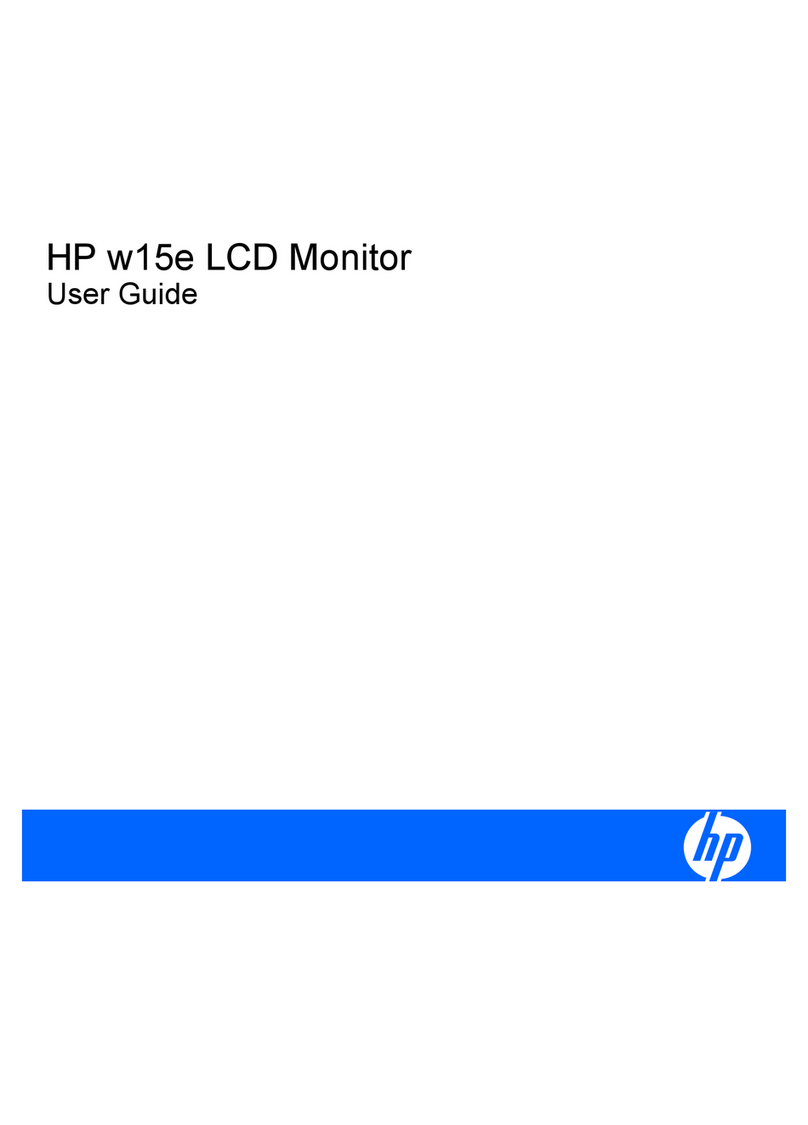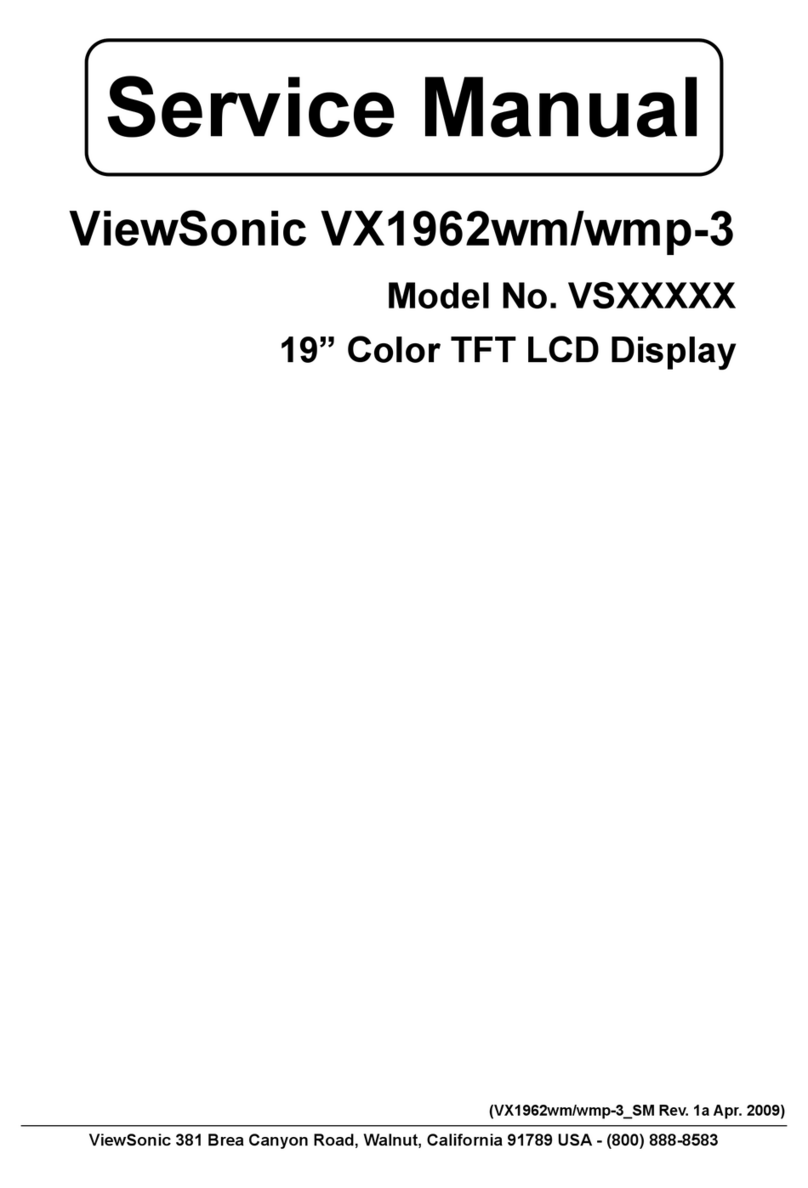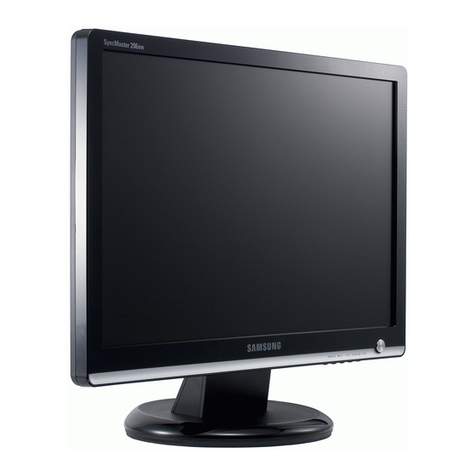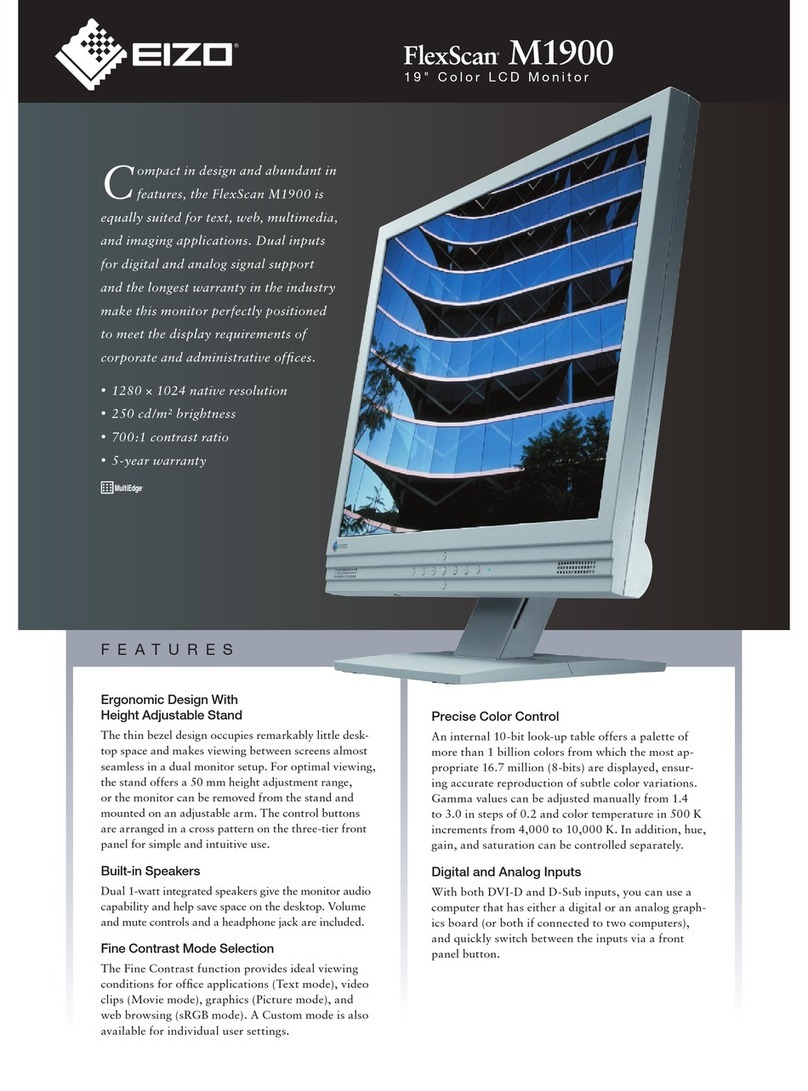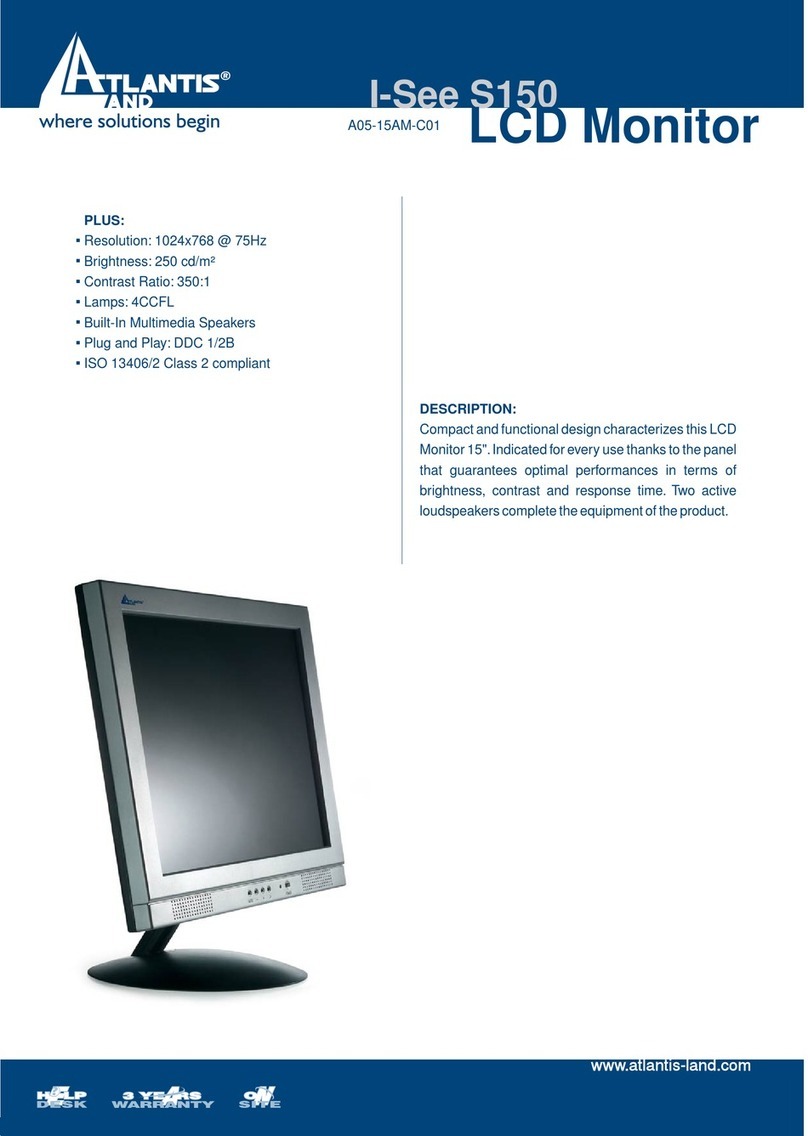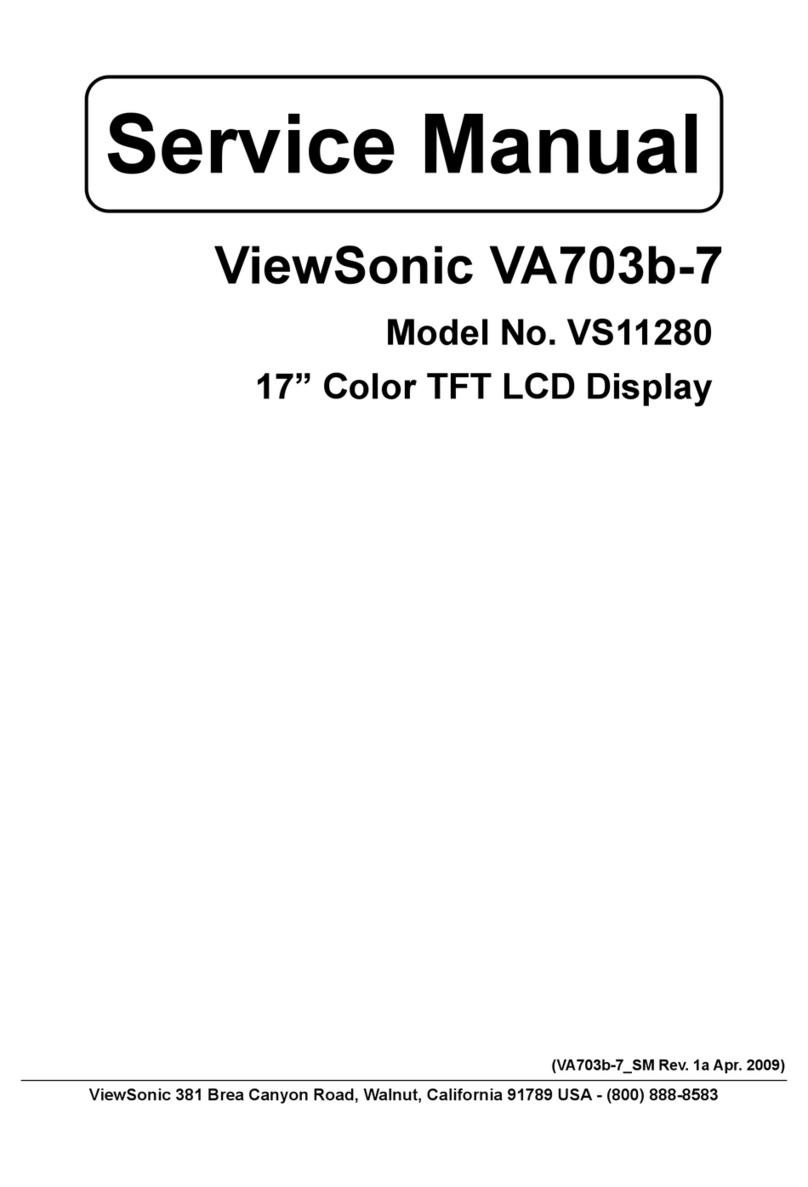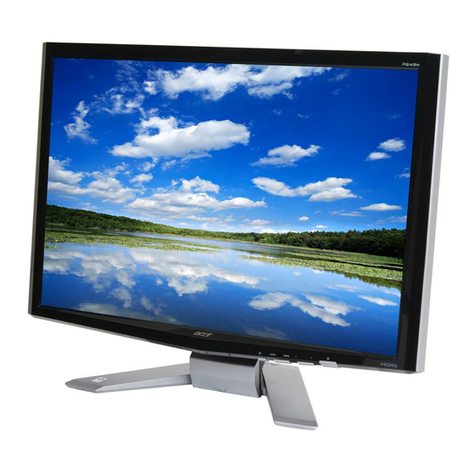BELINEA 10 80 35 User manual

Art. No.: 12 21 03
USER MANUAL
CRT-Monitor
Belinea 10 80 35
Austria
MAXDATA Computer GmbH
Ignaz-Köck-Straße 9 • A-1210 Wien
Benelux
MAXDATA Benelux B.V.
Bredaseweg 113-115 • NL-4872 LA Etten-Leur
Germany
MAXDATA Computer GmbH & Co. KG
Elbestraße 12-16 • D-45768 Marl
France
MAXDATA S.A.R.L.
1, rue du Gevaudan • SILIC 1726
F-91017 EVRY-LISSES
Italy
MAXDATA Italia S.r.l.
Strada 1, Palazzo F1
I-20090 Milanoori, Assago (MI)
Poland
MAXDATA Sp. z o.o.
Ursynów Business Park
Ul. Puławska 303 • PL-02-785 Warszawa
Spain • Portugal
MAXDATA Iberia
C/Collado mediano, s/n • Edicio Prisma
Portal 1 - Pta. 1a B • E-28230 - Las ROZAS, Madrid
Switzerland
MAXDATA Computer AG
Haldenstrasse 5 • CH-6340 Baar
United Kingdom
MAXDATA UK Limited
The MAXDATA Centre • Downmill Road
Bracknell, Berkshire RG12 1QS • UK
www.maxdata.com

BELINEA PREMIUM SERVICE
The three-year return to base warranty for your Belinea monitor includes all parts and labour. In
addition many countries offer a free of charge swap out warranty programme. This does not affect
your Statutory Rights. Please visit http://www.belinea.com or call the numbers below for further
warranty or service information.
Please have the serial and model number ready when calling.
Die Garantie für Ihren Belinea Monitor beträgt drei Jahre und umfasst alle Bauteile. Darüber
hinaus bieten wir in vielen Ländern einen zusätzlichen, kostenlosen Austausch-Service an.
Von dieser o. g. Garantie bleiben etwaige gesetzliche Gewährleistungsrechte unberührt.
Nähere Informationen zu Garantie- und Servicefragen erhalten Sie im Internet unter
http://www.belinea.com sowie unter den u. g. Rufnummern.
Bitte halten Sie für Ihren Anruf Serien- und Modellnummer bereit.
La garantie internationale de trois ans sur les écrans Belinea s’entend pièces et main d’œuvre. Pour
obtenir plus d’informations sur la garantie et le service après-vente contactez-nous sur Internet
http://www.belinea.com ou aux numéros de téléphone ci-dessous. Vous pouvez obtenir également
plus de détails sur les possibilités d’échange gratuit, service offert dans de nombreux pays.
Pour votre appel, tenez les numéros de série et d’article à portée de main.
English
Deutsch
Français
Country Phone number Additional swap out service
Land Telefonnummer Zusätzlicher Austausch-Service
Pays Numéro de téléphone Service supplémentaire d’échange sur site
Belgie/Belgique 0900 10630 (0,45 €/min) 3 year on-site warranty (swap out)
Deutschland 02365 952 1010 3 Jahre Garantie-Austausch-Service
España 090 21 96 497 3 años de garantia con intercambio a domicilio
Ελλαδα 01 02 40 91 50 Εγγυηση 3 χρονια επιτοπου αντικατασταση
France 0820 091820 3 ans de garantie avec échange standard sur site
Italia 02 38 20 20 79 3 anni di Garanza di sostituzione a domicilio
Ireland 00 353 12861343 3 year on-site warranty (swap out)
Luxemburg/Luxembourg 0900 74235 (0,45 €/min) 3 year on-site warranty (swap out)
Magyarország 01 340 99 51/53 3 év helyi szerviz
Nederland 0900 BELINEA (02354632) 3 year on-site warranty (swap out)
(0,70 €/Gesprek)
Österreich 01 277 89 88 3 Jahre Vor-Ort-Austausch-Garantie
Polska 071 337 19 55/022 863 27 77 3 lata gwarancji (door to door).
Portugal 0 21 771 36 00 3 Anos de Troca em Garantia On-Site
Ðîññèÿ +49 (0) 180 5 62 94 68
Òðåõëåòíÿÿ ãàðàíòèÿ ñ çàìåíîé íà ðàáî÷åì ìåñòå
Schweiz 0900 575 111 (2,13 CHF/min) 3 Jahre Vor-Ort-Austausch-Service
United Kingdom 01344 788920 3 year on-site swap out warrant
(UK mainland only)
All other countries
Alle anderen Länder +49 (0) 180 5 62 94 68
Les autres pays

DEUTSCH 2 - 8
ENGLISH 9 - 14
FRANÇAIS 15 - 20
Revision 1.0
BELINEA 10 80 35

2 - Belinea 10 80 35
DEUTSCH
WILLKOMMEN BEI BELINEA
Herzlichen Glückwunsch zu Ihrem neuen Belinea-Monitor. Sie haben sich für einen innovativen Hersteller entschieden,
der High-Tech-Monitore mit sehr hohem Qualitätsniveau fertigt. Wir sind sicher, dass dieser Monitor Ihre Erwartungen
erfüllt und dass Sie mit ihm einen zuverlässigen Partner gewinnen.
Computer und Monitore sind aus dem heutigen Alltag kaum mehr wegzudenken. Als Schnittstelle zwischen Mensch
und Technik kommt dabei dem Monitor eine besondere Bedeutung zu. Dessen sind wir uns bewusst, und wir setzen
dies konsequent in den Grundwerten unserer Produktphilosophie um:
Qualität
Die hohe Qualität unserer Monitore wird von uns ständig überprüft. Sie ist nicht einfach nur ein Versprechen,
sondern wird durch umfangreiche Spezifikationen und zahlreiche Zertifizierungen bestätigt. Das Ergebnis ist
eine hervorragende Bildqualität und Farbbrillanz bei allen Belinea-Modellen.
Zuverlässigkeit
Die bei Belinea-Monitoren eingesetzten Technologien bringen Qualität und Aktualität in Einklang. Eine um-
fangreiche Prüfung der Geräte sorgt dafür, dass nur ausgereifte Technologien ins Programm genommen
werden. Das führt zu äußerst geringen Ausfallraten und besonders langlebigen Produkten.
Ergonomie
Bei all unseren Entwicklungen steht immer eines im Vordergrund: Der Mensch, der am Monitor arbeitet.
Unsere Arbeit soll ihm seine leichter machen. Daher sind Belinea Monitore fast ausschließlich nach den
strengsten Ergonomie-Normen wie z. B. TCO und TÜV Ergonomie zertifiziert und sorgen so für ein durch
und durch angenehmes Arbeiten.
Service
Ob man bei der Wahl des Monitors die richtige Entscheidung getroffen hat, weiß man spätestens, wenn
man den Service benötigt. Deshalb bieten wir in vielen europäischen Ländern einen umfassenden
Garantie-Austausch-Service an, der sowohl die Bildröhre als auch das Panel und Backlight umfasst.

Bedienungsanleitung - 3
DEUTSCH
EINLEITUNG
Dieses Handbuch wird Sie mit der Installation und der
Bedienung des Belinea Monitors vertraut machen. Sehen
Sie diese Anleitung auch dann kurz durch, wenn Ihnen
die Bedienung eines Monitors bereits vertraut ist.
Wir haben alle Sorgfalt walten lassen, um in diesem
Handbuch korrekte und akkurate Informationen zu
geben. Für möglicherweise vorhandene Fehler kann
jedoch keine Haftung übernommen werden. Weiterhin
übernehmen wir keine Garantie dafür, dass die Hardware
den von Ihnen gewünschten Zweck erfüllt. Für Hinweise
auf vorhandene Fehler, Ihre Verbesserungsvorschläge
und Kritik sind wir stets dankbar.
© Copyright 2004
MAXDATA Systeme GmbH
45768 Marl, Deutschland
www.maxdata.com
Alle Rechte vorbehalten. Kein Teil dieses Handbuchs darf in
irgendeiner Form (Druck, Fotokopie, Mikrofilm oder andere Ver-
fahren) ohne vorherige schriftliche Genehmigung des Herstellers
reproduziert oder unter Verwendung elektronischer Systeme
verarbeitet, vervielfältigt oder verbreitet werden.
Änderungen, die dem technischen Fortschritt dienen, blei-
ben vorbehalten. Belinea ist ein international eingetragenes
Warenzeichen. Andere Markennamen können eingetragene
Warenzeichen sein und müssen als solche behandelt werden.
Umweltschutz ist auch unsere Aufgabe: Dieses Handbuch wurde von der ersten bis zur letzten
Seite auf einem Papier gedruckt, bei dessen Herstellung keinerlei Chlor mehr verwendet wird.
INHALTSVERZEICHNIS
Verwendung von Symbolen
In diesem Handbuch wurden folgende Symbole verwandt,
um auf eine mögliche Personengefährdung, Sachschä-
den bzw. nützliche Informationen hinzuweisen:
GEFAHR! Bezeichnet eine mögliche Gefährdung
des Anwenders. Bei Nichtbeachtung können Tod
oder schwerste Verletzung die Folge sein.
ACHTUNG! Weist auf mögliche Sachschäden
hin. Bei Nichtbeachtung können Geräte ernsthaft
beschädigt werden.
WICHTIG! Bezeichnet Anwendungstipps und
andere besonders nützliche Informationen.
WILLKOMMEN BEI BELINEA.....................................2
EINLEITUNG ..............................................................3
WICHTIGE HINWEISE................................................4
WARTUNG UND PFLEGE ..........................................4
AUSPACKEN...............................................................5
ANSCHLIESSEN.........................................................5
EINSCHALTEN............................................................5
KONFIGURIEREN.......................................................6
GRUNDLEGENDE EINSTELLUNGEN .......................6
BILDEINSTELLUNG ÜBER DAS OSD-MENÜ ...........6
FUNKTIONEN DES OSD-MENÜS..............................7
PROBLEMLÖSUNGEN...............................................8
TECHNISCHE DATEN ................................................8
Information zur umwelt-
gerechten Entsorgung
Belinea Monitore sind für ein umweltgerechtes Recycling
gemäß TCO konzipiert. Bei allen Fragen rund um die Ent-
sorgung Ihres Monitores wenden Sie sich bitte an unseren
europaweit tätigen Entsorgungspartner:
Hellmann Process Management GmbH & Co. KG
Adolf-Köhne-Str. 11
49090 Osnabrück
Tel: +49 (0) 541 605 1585
Weitere Informationen zum Recycling von Monitoren
finden Sie unter:
http://LQP2.de.hellmann.net/monitor-recycling

4 - Belinea 10 80 35
DEUTSCH
WARTUNG UND PFLEGE
• Lösen Sie zuerst das Netzkabel von der Stromver-
sorgung, indem Sie den Stecker aus der Steckdose
ziehen.
• Wenn der Monitor stark verschmutzt ist, reinigen
Sie ihn mit einem angefeuchteten Tuch. Verwenden
Sie nur warmes Wasser, und reiben Sie den Monitor
danach trocken. Durch Lösungsmittel bzw. scharfe
Reinigungsmittel kann die Gehäuseoberfläche be-
schädigt werden. Reinigen Sie die Bildröhre nur mit
einem weichen Tuch, da ansonsten die Bildröhren-
beschichtung Schaden nehmen kann.
• Reinigen Sie den Monitor bei leichter Verschmutzung
nur mit einem trockenen, weichen und antistatischen
Tuch.
• Die Kathodenstrahlröhre verfügt über eine spezielle
Beschichtung, mit der die Monitorstrahlung verringert
wird. Diese Beschichtung ist gegenüber Kratzern
empfindlicher als einfachere Monitore ohne diese
Funktion. Berühren Sie den Bildschirm niemals mit
einem Stift. Achten Sie darauf, dass keine Uhren,
Ringe, Knöpfe u. ä. mit dem Bildschirm in Berührung
kommen (eine häufige Ursache für Kratzer sind Kra-
wattennadeln, die beim Umstellen des Monitors den
Bildschirm berühren).
Sicherheitshinweise zum Betrieb
Das Netzkabel darf nicht beschädigt werden.
Stellen Sie keine Gegenstände auf das Netzka-
bel, und sorgen Sie dafür, dass keine Knoten am
Kabel auftreten. Um das Kabel zu lösen, ziehen
Sie stets am Stecker und nie am Kabel selbst.
Ein beschädigtes Netzkabel kann zu Brand oder
Stromschlägen führen.
•Achten Sie darauf, dass die Lüftungsschlitze nicht
verdeckt werden. Die Luftzirkulation im Monitor ist
erforderlich, um eine Überhitzung zu vermeiden.
Wird sie beeinträchtigt, können Brand oder ein
Ausfall des Monitors die Folge sein.
•Verwenden Sie zum Reinigen des Monitors keine
Lösungsmittel, da andernfalls die Gehäuseober-
fläche beschädigt werden kann. Weitere Hinweise
zur Pflege des Geräts finden Sie im Abschnitt
„Wartung und Pflege“.
Öffnen Sie den Monitor niemals eigenständig.An-
dernfalls besteht die Gefahr eines Stromschlags
oder anderer Personenschäden. Der Monitor
darf nur von Fachpersonal geöffnet und gewartet
werden.
Hinweise zur Ergonomie
Um Ihre Augen, Nacken- und Schultermusku-
latur bei der Arbeit am Bildschirm zu schonen,
empfehlen wir, einen Augenabstand von 50 bis
75 cm zum Monitor einzuhalten. Darüber hinaus
können die Augen durch regelmäßiges Fixieren
eines Gegenstandes in etwa 6 m Entfernung
entspannt werden. Sie erreichen eine ergonomi-
sche Sitzhaltung, wenn Ellbogen, Becken, Knie
und Fußgelenke jeweils einen rechten Winkel
bilden.
WICHTIGE HINWEISE
Hinweise zum Aufstellungsort
•Der Aufstellungsort darf weder extrem heiß oder
kalt, noch feucht oder staubig sein. Hitze und
Kälte können die Funktionsfähigkeit des Monitors
beeinträchtigen. Feuchtigkeit und Staub können
zu einem Ausfall des Monitors führen.
•Stellen Sie den Monitor nicht in unmittelbarer
Nähe von Wärmequellen wie Heizkörpern oder
Radiatoren auf. Das Gerät darf zudem keinen
mechanischen Vibrationen oder Stößen ausge-
setzt sein.
•Stellen Sie den Monitor so auf, dass kein direktes
Licht oder Sonneneinstrahlung auf die Bildschirm-
oberfläche fällt. Andernfalls können Spiegelungen
entstehen, so dass die Bildbrillanz beeinträchtigt
wird.
Hinweise zum Netzanschluss
Verwenden Sie ausschließlich das für Ihr Land
geeignete Netzkabel.
•Warten Sie nach dem Ausschalten des Monitors
mindestens 30 Sekunden, bevor Sie das Netzka-
bel ziehen. Diese Zeit ist erforderlich, damit sich
die statische Elektrizität der Bildschirmoberfläche
entladen kann.
Die Netzsteckdose sollte sich in direkter Nähe
befinden und leicht zugänglich sein. Der Monitor
kann nur durch Ziehen des Netzsteckers aus der
Steckdose ganz vom Netz getrennt werden.
•Dieser Monitor ist ENERGY STAR®-kompatibel.
MAXDATA versichert als ENERGY STAR®-Part-
ner, dass dieses Gerät den ENERGY STAR®-
Richtlinien zur Optimierung des Stromverbrauchs
entspricht.

Bedienungsanleitung - 5
DEUTSCH
ANSCHLIESSEN
➧Schließen Sie den Monitor an den PC an ...............
1. Stellen Sie sicher, dass Ihr PC und der Monitor vom
Netz getrennt sind.
2. Schließen Sie das 15-polige Signalkabel des Monitors
an den PC an (siehe Abbildung 2a).
➧Schließen Sie die Stromversorgung an..................
1. Schließen Sie das separate Netzkabel an den Monitor
und eine Schuko-Steckdose an (siehe Abbildung 3).
Abbildung 3. Stromversorgung anschließen
Signalkabel
Netzkabel
Abbildung 1. Monitor mit Dreh-/Schwenkfuß
Heben Sie den Monitor vorsichtig aus der Verpackung,
und überprüfen Sie das Zubehör auf Vollständigkeit
(siehe Abbildung 1).
Montieren Sie den Dreh-/Schwenkfuß des Monitors
(siehe nächsten Absatz).
Bewahren Sie den Originalkarton und das Verpackungs-
material für den Fall auf, dass Sie den Monitor einschi-
cken oder anderweitig transportieren müssen.
➧Monitorfuß anbringen...............................................
1. Legen Sie den Monitor mit der Kopfseite nach
unten auf eine gut gepolsterte Unterlage (Kissen,
Decke o. ä.).
2. Richten Sie die Arretierhaken des Monitorfußes an
den Öffnungen auf der Unterseite des Monitorge-
häuses aus, und schieben Sie den Monitorfuß nach
vorne, bis er mit einem Klicken einrastet.
EINSCHALTEN
3. Wird auf dem Monitor kein Bild angezeigt, lesen Sie
die Informationen im Abschnitt „Problemlösungen“.
➧Monitorfuß abnehmen ..............................................
1. Drücken Sie die Arretierlasche an der hinteren Seite
des Monitorfußes herunter, und ziehen Sie gleichzei-
tig den Fuß nach hinten (in Richtung der Monitorrück-
seite). Danach läßt sich der Fuß leicht vom Monitor
lösen.
AUSPACKEN
3. Schließen Sie bei Bedarf alternativ dazu das BNC-
Signalkabel an den Monitor an (nicht im Lieferumfang
enthalten).
Abbildung 2b. Monitor über ein BNC-Kabel anschließen
1. Schalten Sie zuerst den PC und anschließend den
Belinea-Monitor ein. Die Betriebsanzeige (siehe
in Abbildung 4) leuchtet grün auf.
2. Stellen Sie das Bild gemäß Ihren Anforderungen ein
(siehe die nachstehenden Abschnitte „Bildeinstellung
über das OSD-Menü“ und „Funktionen des OSD-Me-
nüs“).
Abbildung 2a. Monitor an den PC anschließen
Signalkabel

6 - Belinea 10 80 35
DEUTSCH
KONFIGURIEREN
Abbildung 4. Bedienelemente des Monitors
Das OSD-Menü ist ein Fenster am Bildschirm, mit dem
Sie die Einstellungen für die Bilddarstellung auswählen
können.
➧So rufen Sie das OSD-Hauptmenü auf ...................
1. Drücken Sie die Taste MENU (in Abb. 4). Das
OSD-Menü erscheint am Bildschirm.
2. Wählen Sie mit den Tasten und (und
in Abb. 4) die gewünschte Funktionssymbol (siehe
nächsten Abschnitt „Funktionen des OSD-Menüs“).
3. Drücken Sie die Taste SELECT (in Abb. 4), um
die Funktion zu aktivieren.
4. Stellen Sie mit den Tasten und (und
in
Abb. 4) den gewünschten Wert ein.
5. Drücken Sie nochmals die Taste MENU , um den Wert
abzuspeichern. Wiederholen Sie ggf. die Schritte 2–4,
um weitere Einstellungen vorzunehmen.
6. Das OSD-Menü verschwindet von selbst, nachdem
ca. 10 Sekunden lang keine Bedienung erfolgt ist. Da-
bei werden die aktuellen Einstellungen gespeichert.
Sie können es aber auch manuell ausblenden, indem
Sie die Taste MENU drücken.
BILDEINSTELLUNG ÜBER DAS OSD-MENÜ
➧ Monitor unter Windows®9x/ME/2000 und XP kon-
figurieren:
Um den Monitor unter Windows®9x/ME/2000 und XP
in Betrieb zu nehmen, wird dringend empfohlen, die
Belinea-Einstellungsdatei zu installieren. Sie können
diese über Ihren Belinea-Händler beziehen oder vom
MAXDATA FTP-Server ftp.maxdata.com laden. Wählen
Sie hier die Rubrik „Belinea_Treiber_Driver“, und laden
Sie die Dateien Belinea.inf und README_Belinea.TXT
herunter. Befolgen Sie die Installationsanweisungen in
der Datei README_Belinea.TXT.
➧ Monitor unter Windows®NT 4.0 konfigurieren:
Unter Windows®NT 4.0 benötigen Sie keine separate
Einstellungsdatei. Wählen Sie die Bildwiederholfrequenz
und Anzahl der Farben direkt unter den Menüpunkten
„Einstellungen“, „Systemsteuerung“, „Anzeige“, „Ein-
stellungen“ aus.
GRUNDLEGENDE EINSTELLUNGEN
➧Kontrast und Helligkeit direkt einstellen...................................................................................................................
Sie können den Kontrast und die Helligkeit direkt einstel-
len, indem Sie Tasten oder (und in Abb. 4)
drücken, während das OSD-Menü nicht angezeigt wird.
Drücken Sie die Taste für die Direkteinstellung der
Helligkeit oder die Taste für die Kontrastdirekteinstel-
lung. Nachdem das entsprechende OSD-Menü angezeigt
wird, drücken Sie die Taste, um die Helligkeit oder
den Kontrast zu erhöhen, oder die Taste , um sie zu
reduzieren. Mit der Taste MENU (in Abb. 4) können
Sie das jeweilige Menü beenden.

Bedienungsanleitung - 7
DEUTSCH
FUNKTIONEN DES OSD-MENÜS
Degauss
Korrigiert Farbfehler des Monitorbildes. Die Farbfehler
können durch Interferenzen mit dem Erdmagnetfeld
auftreten, z. B. wenn Sie den Monitor drehen oder trans-
portieren. Diese Funktion wird direkt nach Anwählen des
Funktionssymbol und Drücken der OSD-Taste ENTER
ausgelöst.
Color
Wählen Sie mit den OSD-Tasten oder (und
in Abb. 4) eine voreingestellte Farbtemperatur (9300 K ,
6500 K oder USER), und drücken Sie die Taste MENU.
Die Auswirkung der von Ihnen gewählten Farbtemperatur
ist sofort am Bildschirm sichtbar.
Language
Wahl der Sprache des OSD-Menüs: Englisch, Spanisch,
Französisch, Deutsch, Italienisch, Schwedisch, Finnisch,
Dänisch, Portugiesisch und Niederländisch.
OSD H. position
Regelt die horizontale Lage des OSD-Menüs.
OSD V. position
Regelt die vertikale Lage des OSD-Menüs.
H. + V. Linearity
Korrigiert die horizontale bzw. vertikale Linearität.
Memory recall
Stellt die werkseitigen Bildeinstellungen wieder her.
Information
Gibt Informationen über horizontale und vertikale Signal-
polarität der aktuellen Synchronisationseinstellungen.
BNC/D-Sub
Auswahl der Signalquelle.
PR Purity
Korrektur der Farbreinheit der Bildschirmanzeige.
HC VC H. Convergence + V. Convergence
Entfernen von horizontalen oder vertikalen Farbschattie-
rungen um Texte oder Grafiken.
Contrast
Regelt den Kontrast des Bildes.
Brightness
Regelt die Helligkeit des Bildes.
H. Size
Regelt die horizontale Größe des Bildes.
H. Position
Regelt die horizontale Position des Bildes.
V. Size
Regelt die vertikale Größe des Bildes.
V. Position
Regelt die vertikale Position des Bildes.
Pincushion
Regelt die Geradlinigkeit der vertikalen Bildkanten.
Pin balance
Korrigiert die vertikalen Bildkanten, wenn sie nach links
oder rechts gebogen sind.
Trapezoid
Stellt die vertikalen Bildkanten so ein, dass sie parallel
erscheinen.
Parallel
Korrigiert die vertikalen Bildkanten, wenn sie nach links
oder rechts geneigt sind.
Top / Bottom corner
Korrigiert Verzerrungen der Bildecken.
Rotation
Korrigiert eine Schräglage (Drehung) des Bildes.
V + H Moiré
Korrigiert unerwünschte Bildmuster. Moiré ist eine
Interferrenz, bei der wellenlinige Muster erscheinen.
Normalerweise kann diese Interferenz beseitigt, in Aus-
nahmefällen jedoch nur korrigiert werden.

8 - Belinea 10 80 35
DEUTSCH
TECHNISCHE DATEN
Bildröhre 21 Zoll Bilddiagonale (50,8 cm sichtbar)
Lochmaskenabstand diagonal/horizontal: 0,25/0,20 mm
antistatische und Antireflexbeschichtung; strahlungsarm nach TCO '03, Phosphortyp P22
Eingangssignal Video: RGB analog, 15-Pin-Stecker (D-SUB) und BNC;
Bildschirmfarben unbegrenztes Farbspektrum
Synchronisierung 30 – 125 kHz horizontal, 50 – 160 Hz vertikal
Videobandbreite 340 MHz
Auflösung maximale Auflösung 2048 × 1536, ergonomische Auflösung 1600 × 1200 (85 Hz)
Stromversorgung 100 – 240 V~, 50 – 60 Hz, 3,0 A
Leistungsaufnahme ON-Status: max. 135 W; Farbe der Betriebsanzeige: grün;
SLEEP-Status: < 4 W; Farbe der Betriebsanzeige: orange;
Stromsparfunktionen nach EPA
Abmessungen/Gewicht Breite 500 mm, Höhe 495 mm, Tiefe 486 mm; 25 kg (nur Monitor)
Umgebungsbedingungen Betrieb: 0 – 35 °C, rel. Luftfeuchtigkeit: 10 bis 90 % (nicht kondensierend)
Lagerung: -25 – +60 °C, rel. Luftfeuchtigkeit 10 bis 90 % (nicht kondensierend)
PROBLEMLÖSUNGEN
Kein Bild
Netzanzeige leuchtet nicht
- Prüfen Sie, ob das Netzkabel richtig angeschlossen ist (siehe Abschnitt „Anschließen“).
- Stellen Sie sicher, dass der Monitor mit dem Netzschalter eingeschaltet wurde (siehe Abschnitt „Einschalten“).
Netzanzeige leuchtet orange
- Befindet sich der Monitor in einem Stromsparmodus?
Netzanzeige leuchtet grün
- Evtl. ist ein Bildschirmschoner auf Ihrem PC installiert und wurde nach einer bestimmten Zeit der Inaktivität eingeschaltet.
Drücken Sie eine Taste auf der Tastatur, oder bewegen Sie die Maus.
Testbild
- Überprüfen Sie, ob das Signalkabel an die VGA-Buchse des PC angeschlossen ist (s. Abschnitt „Anschließen“).
- Ist der PC eingeschaltet (siehe Abschnitt „Einschalten“)?
Fehler bei der Bilddarstellung
Bild ist nach links/rechts oder oben/unten verschoben
- Wenn das Bild zwar normal, aber nicht zentriert erscheint, können Sie dies mit den OSD-Funktionen justieren. Weitere Infor-
mationen hierzu finden Sie im Abschnitt „Funktionen des OSD-Menüs“ unter den Funktionen „H. Position“ und „V. Position“.
Bild flimmert oder zittert
- Wenn das Bild normal dargestellt wird aber unruhig erscheint, kann dies an einer zu geringen Bildwiederholfrequenz liegen.
Wählen Sie eine höhere Bildfrequenz. Weitere Informationen hierzu finden Sie in der Dokumentation zu Ihrem PC, zur Gra-
fikkarte bzw. zum Betriebssystem.
- Möglicherweise ist nicht die richtige Einstellungsdatei für den Monitor ausgewählt. Informationen zum Einrichten des Monitors
unter Windows®9x/ME/2000 und XP finden Sie im Anschnitt „Konfigurieren“.
Bild ist verschwommen oder unscharf
- Überprüfen Sie die Helligkeits- und Kontrasteinstellung (siehe Abschnitt „Grundlegende Einstellungen“).
- Bei hohen Auflösungen und Bildwiederholfrequenzen erscheint die Bilddarstellung etwas unschärfer. Wählen Sie ggf. eine
geringere Frequenz aus.
Farbdarstellung ungenügend
- Wenn einzelne Bildbereiche Farbverfälschungen aufweisen, sollte der Monitor entmagnetisiert werden (siehe Funktion „Deg-
auss“ im Abschnitt „Funktionen des OSD-Menüs“).
- Wenn die Farben etwas anders aussehen, als sie eigentlich sollten (z. B. weiß nicht richtig weiß ist), sollten Sie die Farbtem-
peratur nachregeln (siehe Funktion „Color“ im Abschnitt „Funktionen des OSD-Menüs“).
- Geräte, die Magnetfelder erzeugen, z. B. Laserdrucker, Lautsprecherboxen u.a., sollten nicht in unmittelbarer Nähe des Mo-
nitors aufgestellt werden. Andernfalls kann die Bildqualität beeinträchtigt werden.
Bildränder verzerrt
- Wenn die Bildränder leicht verzerrt, gebogen oder geneigt erscheinen oder das gesamte Bild nicht waagerecht liegt, können
Sie dies über die Funktion des OSD-Menü nachregeln (siehe Funktionen „Trapezoid“, „Parallel“, „Top/Bottom Corner“ sowie
„Rotation“ im Abschnitt „Funktionen des OSD-Menüs“).

Operating Instructions - 9
ENGLISH
INTRODUCTION
This manual will familiarize you with the installation and
use of your Belinea Monitor. Please take the time to look
through these instructions even if you are familiar with
monitors.
We has taken all possible care to ensure that this manual
contains correct, accurate information. However, the
manufacturer cannot assume liability for any possible
errors. In addition, the manufacturer cannot guarantee
that the hardware will meet the purpose you require. We
would appreciate reports of any errors, suggestions or
criticism.
© Copyright 2004
MAXDATA Systeme GmbH
45768 Marl, Germany
www.maxdata.com
All rights reserved. No part of this manual may be reproduced,
processed or distributed in any form (print, photocopy, microfilm
or any other process) or processed by an electronic system
without prior written permission from the manufacturer.
We reserve the right to make changes according to technical
progress. Belinea is an internationally registered trademark.
Other brand names may be registered trademarks and must
be treated as such.
TABLE OF CONTENTS
Guide to symbols
The symbols below are used in this manual to indicate
where there is risk of injury or damaging devices or to
indicate especially useful information:
DANGER! Indicates risk of injury. When not
following instructions, severe injury or death
may result.
ATTENTION! Indicates possible damage to
devices. When not following instructions, devices
may be heavily damaged.
IMPORTANT! Indicates hints on operation and
other useful information.
INTRODUCTION.........................................................9
TABLE OF CONTENTS...............................................9
IMPORTANT INFORMATION....................................10
CARING FOR YOUR MONITOR...............................10
UNPACKING ............................................................ 11
CONNECTING ......................................................... 11
STARTUP ................................................................. 11
CONFIGURATION.....................................................12
BASIC SETUP...........................................................12
IMAGE SETTINGS USING THE OSD MENU...........12
OSD MENU FUNCTIONS .........................................13
TROUBLESHOOTING ..............................................14
TECHNICAL SPECIFICATIONS................................14
Information about
Environmentally Sound
Waste Management
Belinea monitors are designed to be environmentally
sound according to TCO guidelines. Please direct any
questions you may have regarding the disposal of your
monitor to our European waste management affiliate:
Hellmann Process Management GmbH & Co. KG
Adolf-Köhne-Str. 11
49090 Osnabrück
Tel: +49 (0) 541 605 1585
For more information on recycling your monitor please
visit:
http://LQP2.de.hellmann.net/monitor-recycling
We are all responsible for the environment: this manual was printed from front to back on paper
that was produced without chlorine.
Important Safety Instructions
Some Belinea monitor models come with 2 power cords.
Please ensure you use the UK plug (3 pin) in the UK and
not the European plug (2 pin).
Do not place the monitor in very hot or cold, nor damp or
dusty surroundings. Do not put vases etc. on the monitor,
water may cause short circuits. Do not block or cover the
ventilating openings. All products that produce magnetic
fields, i.e. laser printers, loud-speakers etc., must not be
placed close to the monitor. Do not install this monitor
in areas where too much light or sunshine might directly
hit the screen, otherwise the brightness of the picture
will be poor due to reflections. Refer all servicing and
maintenance to authorised service personnel only!
CAUTION
Do not remove the cover!
Serious electrical shock hazards exist inside this
monitor.
NOTE
Removal of cover invalidates your warranty.

10 - Belinea 10 80 35
ENGLISH
IMPORTANT INFORMATION
Safety instructions for operation
The power cord must not be damaged. Do not
place any objects on the power cord and make
sure it does not have any knots. To unplug the
cord, always pull on the plug and not on the cable
itself.
•Avoid covering the ventilation slots. Air circulation
is necessary to prevent the monitor from
overheating. If the air circulation is restricted it
could cause fire or damage the monitor.
•Do not use any solvents to clean the monitor,
as the housing could be damaged. For more
information about cleaning the monitor, please
see “Caring for Your Monitor”.
Never open the monitor housing yourself. There
is a danger of electric shock and other hazards.
The monitor may only be opened and serviced by
qualified professionals.
Notes on ergonomics
To protect your eyes, neck and shoulder muscles
when working with a computer, we recommend
that you maintain a viewing distance of between
50 and 75 cm from the monitor. Furthermore, you
should regularly focus on an object around 6 m
away from you to help your eyes relax. Ergono-
mically, your posture is best when elbows, pelvis,
knees and ankles are all at right angles.
Note on monitor placement
•The setup location must not be extremely hot,
cold, humid or dusty. Heat and cold can impair
the functionality of the monitor. Humidity and dust
can cause the monitor to fail.
•Don’t place the monitor near heaters such as
radiators or the like. Don’t expose the monitor to
mechanical vibrations or jarring.
•Position the monitor so that no direct light or sun
strikes the screen, which could cause reflections
that reduce the quality of the image.
Notes on power connection
Only use the power cord designated for use in
your country.
•After turning off the monitor wait for 30 seconds
before disconnecting the power cord. This time is
needed for the static electricity on the screen to
dissipate.
The wall outlet should be within easy reach. Pulling
the power plug is the only way to disconnect the
monitor from the power source.
•This monitor is ENERGY STAR®-compatible.
MAXDATA is an ENERGY STAR®partner and
guarantees that this device complies with the
ENERGY STAR®guidelines for optimizing power
consumption.
•If the monitor is extremely dirty, clean it with a moist
cloth. Use only warm water and then wipe the
monitor dry. Solvents or harsh cleaners can damage
the housing. Clean the picture tube only with a soft
cloth, otherwise you may damage the picture tube
coating.
•If the monitor is only slightly dirty, clean it using a soft,
dry and antistatic cloth.
•The monitor’s cathode ray tube is covered with a
special coating for reduced emissions. This coating
is more susceptible to scratches and marking than
lower performance displays lacking this feature. Do
not touch the screen with pens and pencils. Do not
allow watches, rings, buttons and other clothing
accessories to brush against the screen (a common
cause of scratches are tie pins when moving the
display).
CARING FOR YOUR MONITOR
•First, unplug the power cord from the wall socket.

Operating Instructions - 11
ENGLISH
Figure 2a. Connecting the monitor to the PC
1. First, turn on your PC, and then turn on your Belinea
monitor. The status indicator (see in figure 4)
should light up green.
2. Adjust the image to meet your requirements (see the
following sections “Image settings using the OSD
menu” and “OSD Menu Functions”).
Figure 1. Monitor with Tilt/Swivel Base
Carefully lift the monitor out of the packaging and make
sure that all components are included (see Figure 1).
Assemble the tilt/swivel base to the monitor (see the
next section).
Save the original box and packing material in case you
have to ship or transport the monitor.
➧ Assembling the tilt/swivel base...............................
1. Place the monitor screen down on a soft surface
(pillow, blanket or similar object).
2. Align the latches of the tilt/swivel base with the
openings on the bottom of the monitor and push the
base forward until it locks into place.
UNPACKING
STARTUP
3. If there is no image displayed on the monitor, consult
the section “Troubleshooting”.
Power Cord
Signal Cable
➧Disassembling the tilt/swivel base..........................
1. Push the locking tabs at the back of the base inward
while pulling the base backward (toward the monitor’s
back). Now the base should come off easily.
Signal cable
CONNECTING
➧To connect the monitor to your PC .........................
1. Make sure that the PC and monitor are unplugged.
2. Connect the 15-pin signal cable to the monitor and
the PC (see figure 2a).
➧To connect the monitor to the power source .........
1. Connect the separate power cable to the monitor and
a grounded outlet (see figure 3).
Figure 3. Connecting the monitor to the power source
3. Alternately, you can connect a BNC signal cable to
the monitor as required (BNC cable not supplied).
Figure 2b. Monitor connected via the BNC cable

12 - Belinea 10 80 35
ENGLISH
Figure 4. Monitor features
The OSD menu appears in a window on your screen.
It allows you to select the image settings you want to
change.
➧How to open the OSD menu ....................................
1. Press the button MENU (in figure 4) to display the
OSD menu on the screen.
2. Select the desired function icon using the buttons
and (and in figure 4, see the following
section “OSD Menu Functions”).
3. Press the button SELECT (in figure 4) to activate
the function.
4. Enter the desired value by using the buttons and
(and ).
5. To store the setting, press the button MENU again.
Repeat steps 2–4 to make further adjustments as
needed.
6. The OSD menu will automatically disappear if no
changes are made for more than 10 seconds. The
current settings will be saved. You can also close it
manually by pressing the button MENU.
IMAGE SETTINGS USING THE OSD MENU
➧Monitor setup under Windows®9x/ME/2000 and
XP:
If using the monitor under Windows®9x/ME/2000 or XP
we strongly recommend installing the Belinea settings file.
You can get this file from your Belinea dealer or download
it from the MAXDATA FTP server at ftp.maxdata.com.
Here, click the “Belinea_Treiber_Driver” directory and
download the Belinea.inf and README_Belinea.TXT
files. Follow the installation instructions in the README_
Belinea.TXT file.
CONFIGURATION
➧Monitor setup under Windows®NT 4.0:
Under Windows®NT 4.0 no separate setup file is
required. Select the vertical frequency and the number
of colors directly from within the “Settings” “Control
Panel” “Display” “Settings” menu.
BASIC SETUP
➧Shortcut for adjusting contrast and brightness .......................................................................................................
You can adjust the contrast and brightness directly by
pressing the or buttons (and in fig. 4) while
the OSD menu is not displayed. To adjust the bright-
ness directly, press the button. To adjust the contrast
directly, press the button. After the corresponding
OSD menu is displayed, press the button to incre-
ase the brightness or contrast, or press the button to
reduce it. Press button MENU (in fig. 4) to close the
corresponding menu.

Operating Instructions - 13
ENGLISH
OSD MENU FUNCTIONS
Contrast
Controls the picture contrast.
Brightness
Controls the picture brightness.
H. Size
Controls the horizontal image size.
H. Position
Controls the horizontal position.
V. Size
Controls the vertical image size.
V. Position
Controls the vertical position.
Pincushion
Corrects pincushion distortion.
Pin balance
Corrects parallel distortion of edges.
Trapezoid
Corrects inward/outward slanted edges.
Parallel
Corrects parallel slanted edges.
Top / Bottom corner
Correct distorted corners.
Rotation
Corrects tilted image.
H + V Moiré
Corrects moiré patterns. Moiré patterns are interference
patterns that appear as wave lattices (especially prone
to appear in black-white alternating dot patterns). Usu-
ally, this interference can be removed; however, it can
sometimes only be reduced.
Degauss
Corrects image color distortions. The color distortion may
be due to interference from the earth’s magnetic field, e.g.
when the monitor is rotated or moved. This function is
triggered by selecting the function symbol and pressing
the OSD button ENTER.
Color
Using the OSD buttons or (and in fig. 4), you
can select a preset color temperature (9300 K, 6500 K
or USER) and then press the MENU button. The color
temperature you select takes effect immediately on the
screen.
Language
Selection of the OSD menu language: English, Spanish,
French, German, Italian, Swedish, Finnish, Danish, Por-
tuguese, Dutch.
OSD H. position
Controls the horizontal position of the OSD menu.
OSD V. position
Controls the vertical position of the OSD menu.
H. + V. Linearity
Corrects horizontal and vertical linearity.
Memory recall
Recalls factory settings of the image parameters.
Information
Provides information on the horizontal and vertical signal
polarity of the current synchronization settings.
BNC/D-Sub
Selection of signal source.
PR Purity
Corrects the color unit on the CRT display.
HC VC H. Convergence + V. Convergence
Removes horizontal or vertical hues around texts and
graphics.

14 - Belinea 10 80 35
ENGLISH
TROUBLESHOOTING
Blank Screen
Power indicator is off
- Check if the power cable is connected properly (see section “Connecting”).
- Make sure that the monitor was turned on using the power switch (see section “Startup”).
Power indicator lights orange
- Perhaps a power saving mode is active?
Power indicator lights green
- A screen saver may have activated automatically after a certain period of inactivity. Press any key on your keyboard or move
the mouse.
RGB bars
- Make sure the signal cable is connected to the PC’s VGA connector (see section “Connecting”).
- Is the PC turned on (see section “Startup”)?
Display Problems
Image is displaced to the left/right or to the top/bottom
- If the image is displayed normally but not centered correctly, you can adjust its position using the OSD functions. For more
information on this topic consult the functions “V. Position” and “H. Position” in the “OSD Menu Functions” section.
Image flickers or is shaky
-If the image is displayed normally but appears slightly shaky, the vertical frequency might be too low. Select a higher frequency.
For more information on this topic consult the user’s guide of your PC, graphics card or operating system.
- Perhaps setup file chosen for the monitor is incorrect. For information on monitor setup under Windows 95/98/ME/2000/NT
consult the “Configuration” section.
Image is blurred
- Check brightness and contrast settings (see section “Basic Setup”).
- If the vertical frequency is too high, the image might be slightly blurred. In this case lower the frequency.
Color problems
- If the colors are distorted in some areas, you should demagnetize your monitor (see “Degauss” function in section “OSD Menu
Functions”).
- If the colors are off (e.g. white is not really displayed as white etc), you should adjust the color temperature (see “Color” function
in section “OSD Menu Functions”).
- Devices generating magnetic fields, such as laser printers and loudspeakers, shouldn’t be placed near the monitor since they
might affect image quality.
Image edges distorted
- If the image is slightly distorted, bent or tilted at the edges or the entire image is not aligned horizontally, you can correct this
using the OSD menu functions (see “Trapezoid”, “Parallel”, “Top/Bottom Corner” and “Rotation” functions in section “OSD Menu
Functions”).
TECHNICAL SPECIFICATIONS
Picture tube 21 inches diagonal size (50.8 cm visible),
dot pitch diagonal/horizontal: 0.25mm/0.20mm
glare-free coating; low emissions according to TCO '03, phosphorus type P22
Input signal RGB analog, 15-pin plug (D-SUB) and BNC
Display colors unlimited colors
Video Bandwidth 340 MHz
Synchronization 30 – 125 kHz horizontal, 50 – 160 Hz vertical
Resolution maximum resolution: 2048 × 1536, ergonomic resolution: 1600 × 1200 (85 Hz)
Power supply 100 – 240V~, 50 – 60 Hz, 3.0 A
Power consumption ON status: max. 135 W; power indicator color: green;
SLEEP status: < 4 W; power indicator color: orange;
Power saving functions conforming with EPA
Dimensions, Weight width: 500mm, height: 495mm, depth: 486mm; 25 kg (monitor only)
Environmental conditions Operation: 32 – 95 °F (0 – 35 °C), rel. humidity: 10 to 90 % (non-condensing)
Storage: -13 – +140 °F (-25 – +60 °C), rel. humidity: 10 to 90 % (non-condensing)

Mode d'emploi - 15
FRANÇAIS
INTRODUCTION
Ce manuel est destiné à vous familiariser avec
l’installation et l’utilisation de votre moniteur Belinea.
Veuillez prendre le temps de lire ces instructions,
même si vous êtes familier de l’usage des moniteurs en
informatique.
Le constructeur a fait tout son possible pour que ce
manuel ne contienne que des informations précises et
correctes, mais il ne saurait être tenu responsable des
possibles erreurs. En outre, le constructeur ne peut
garantir que ce matériel est adapté à l’usage que vous
souhaitez en faire. Nous vous remercions par avance
pour toute remarque d’erreur, suggestion ou critique.
© Copyright 2004
MAXDATA Systeme GmbH
45768 Marl, Allemagne
www.maxdata.com
Tous droits réservés. Aucune partie de ce manuel ne peut être
reproduite, adaptée ou distribuée sous quelque forme que ce
soit (imprimerie, photocopie, microfilm ou tout autre procédé)
ou traités sous forme électronique sans l’autorisation écrite
préalable du fabricant.
Nous nous réservons le droit d’apporter des modifications
motivées par le progrès technique. Belinea est une marque
internationalement déposée. Les autres marques et noms
de produits mentionnés dans ce document peuvent être des
marques commerciales ou des marques déposées et sont à
considérer comme telles.
Nous sommes tous responsables de l’environnement: ce manuel a été entièrement imprimé
sur du papier exempt de chlore.
TABLE DES MATIÈRES
Guide des symboles
Les symboles illustrés ci-dessous sont utilisés dans
ce manuel pour indiquer un risque de se blesser ou
d’endommager les périphériques, ou encore pour
signaler une information particulièrement utile:
DANGER! Indique un risque de blessure. Si
vous ne respectez pas les instructions, vous
risquez un accident grave ou potentiellement
mortel.
ATTENTION! Indique un risque d’endommager
les périphériques. Si vous ne respectez pas
les instructions, les périphériques peuvent être
endommagés.
IMPORTANT! Indique un conseil d’utilisation ou
autre information utile.
INTRODUCTION.......................................................21
INFORMATIONS IMPORTANTES ............................22
ENTRETIEN DE VOTRE MONITEUR.......................22
DÉBALLAGE ............................................................23
RACCORDEMENT ...................................................23
MISE EN ROUTE .....................................................23
CONFIGURATION.....................................................24
CONFIGURATION DE BASE ....................................24
RÉGLAGE DE L’IMAGE DANS LE MENU OSD .......24
FONCTIONS DU MENU OSD...................................25
RÉSOLUTION DES PROBLÈMES ...........................26
SPÉCIFICATIONS TECHNIQUES ............................26
Gestion des déchets dans le
respect de l’environnement
Les moniteurs Belinea sont conçus pour respecter
l’environnement selon les directives TCO. Pour toute
question concernant la mise au rebut de ce moniteur,
consultez notre partenaire chargé de la gestion des
déchets pour l’Europe :
Hellmann Process Management GmbH & Co. KG
Adolf-Köhne-Str. 11
49090 Osnabrück
Tel: +49 (0) 541 605 1585
Pour en savoir plus sur le recyclage de votre moniteur,
visitez le site :
http://LQP2.de.hellmann.net/monitor-recycling

16 - Belinea 10 80 35
FRANÇAIS
ENTRETIEN DE VOTRE MONITEUR
•Commencez toujours par débrancher le câble
d’alimentation de la prise électrique.
•Si le moniteur est extrêmement sale, utilisez un
chiffon humidifié à l’eau chaude, et essuyez ensuite
le moniteur. Les solvants et autres produits nettoyants
pourraient endommager le boîtier. Ne nettoyez l’écran
qu’à l’aide d’un chiffon très doux, faute de quoi vous
pourriez endommager son revêtement anti-reflets.
•Si le moniteur n’est pas très sale, nettoyez-le à l’aide
d’un chiffon doux, sec et antistatique.
•Le tube cathodique de ce moniteur est doté
d’un revêtement spécial destiné à réduire les
émissions électromagnétiques. Ce revêtement est
beaucoup plus sensible aux éraflures et marques que
les revêtements des moniteurs de moindres
performances. Ne touchez pas la surface de l’écran
avec un crayon ou un stylo. Ne laissez pas une
montre, une bague, un bouton, une épingle de
cravate ou tout autre accessoire vestimentaire venir
en contact avec la surface de l’écran (c’est une cause
courante d’éraflure lorsque l’écran est déplacé).
INFORMATIONS IMPORTANTES
Précautions d’emploi
Le câble d’alimentation secteur ne doit pas être
endommagé. Ne placez aucun objet sur ce câble,
et évitez qu’il ne s’emmêle. Pour débrancher ce
cordon, tirez toujours sur la prise, et non sur le
câble lui-même. Un câble électrique endommagé
pourrait provoquer un incendie ou une électrocu-
tion.
• Évitez de recouvrir les orifices de ventilation. Une
circulation d’air constante est nécessaire pour
empêcher le moniteur de trop chauffer. Si l’air ne
peut plus circuler, le moniteur peut être gravement
endommagé.
• N’utilisez pas de solvants pour nettoyer le moni-
teur, cela pourrait endommager le boîtier. Pour
plus d’informations sur le nettoyage du moniteur,
consultez le paragraphe « Entretien de votre
moniteur ».
N’ouvrez jamais vous-même le moniteur, vous
pourriez être électrocuté. Ce moniteur ne doit
être ouvert et réparé que par des professionnels
qualifiés.
Remarques sur l’ergonomie
Pour soulager vos yeux et les muscles de votre
nuque et de vos épaules lorsque vous travaillez
sur un ordinateur, nous vous recommandons
de maintenir une distance d’observation de 50
à 75 cm du moniteur. De plus, concentrez-vous
régulièrement sur un objet situé à environ 6 m de
vous pour permettre à vos yeux de se reposer.
D’un point de vue ergonomique, vous adoptez la
posture la mieux adaptée lorsque les épaules, le
bassin, les genoux et les chevilles sont à angle
droit.
Note sur la mise en place du moniteur
• L’emplacement choisi pour l’installation ne doit
être ni trop chaud, ni trop froid, ni humide ou
poussiéreux. La chaleur et le froid peuvent altérer
les fonctionnalités du moniteur. L’humidité et la
poussière peuvent le mettre hors service.
• Ne placez pas le moniteur à proximité d’une
source de chauffage, par exemple un radiateur.
N’exposez pas le moniteur à des vibrations mé-
caniques ou à des secousses.
• Positionnez le moniteur de façon à protéger
l’écran de la lumière directe ou du soleil: la lumière
directe peut provoquer des réflexions nuisibles à
la qualité de l’image.
Notes sur le raccordement à l’alimentation
électrique
N’utilisez que le type de cordon secteur destiné
à être utilisé dans votre pays.
• Après avoir éteint le moniteur, attendez une
trentaine de secondes avant de débrancher le
cordon secteur. Ce délai est nécessaire pour
permettre à l’électricité statique de se dissiper.
La prise d’alimentation murale doit être aisément
accessible. La seule façon de débrancher le
moniteur de la source d’alimentation électrique
consiste à débrancher le cordon secteur.
• Ce moniteur est compatible ENERGY STAR®. MA-
XDATA est partenaire du programme ENERGY
STAR®et garantit que cet appareil est conforme
aux recommandations ENERGY STAR®pour
l’optimisation de la consommation électrique.

Mode d'emploi - 17
FRANÇAIS
Figure 2a. Raccordement du moniteur au PC
➧Pour raccorder le moniteur à votre PC ..................
1. Vérifiez que le PC et le moniteur sont débranchés.
2. Connectez le câble à 15 broches du signal vidéo au
moniteur et au PC (voir figure 2a).
➧Pour raccorder le moniteur à la source
d’alimentation électrique ............................................
1. Connectez le câble d’alimentation électrique au
moniteur d’une part, et à une prise électrique murale
avec mise à la terre d’autre part (voir figure 3).
Figure 3. Raccordement du moniteur à la source d’alimentation
électrique
1. Mettez d’abord votre PC sous tension, puis allumez
votre moniteur Belinea à l’aide de son interrupteur.
L’indicateur d’état (voir à la Figure 4) doit s’allumer
en vert.
Câble du signal
Câble d’alimentation
Figure 1. Le moniteur avec sa base inclinable et pivotante
Soulevez avec douceur le moniteur de son emballage,
et vérifiez que tous les accessoires sont présents (voir
figure 1).
Assemblage de la base pivotante et basculante sous le
moniteur (voir la section suivante).
Conservez le carton original et les matériaux d’emballage,
au cas où vous devriez expédier ou transporter le
moniteur.
➧ Mise en place de la base inclinable et orientable ..
1. Retournez le moniteur en plaçant l’écran sur une
surface absorbante (oreiller, couverture, etc).
2. Alignez les loquets de la base inclinable et orientable
face aux ouvertures qui se trouvent sur la partie
inférieure du moniteur, et poussez la base vers l’avant
jusqu’à ce qu’elle se verrouille en place.
DÉBALLAGE
MISE EN ROUTE
2. Ajustez l’image selon vos goûts (voir ci-dessous les
sections « Réglage de l’image dans le menu OSD »
et « Fonctions de l’OSD »).
3. Si aucune image n’apparaît sur le moniteur, consultez
la section « Résolution des problèmes ».
Câble du signal
RACCORDEMENT
➧Désassemblage de la base inclinable et
orientable .....................................................................
1. Poussez les onglets de verrouillage (à la partie
inférieure de la base) vers l’intérieur, tout en tirant la
base vers l’arrière du moniteur. La base se dégage
sans effort excessif.
3. Vous pouvez aussi brancher un câble d’interface BNC
au moniteur comme cela est demandé (câble BNC
non fourni).
Figure 2b. Moniteur connecté avec un câble BNV

18 - Belinea 10 80 35
FRANÇAIS
Figure 4. Contrôles de la face avant
Le menu OSD apparaît sur votre écran dans une fenêtre.
Il vous permet de sélectionner le paramètre d’image que
vous désirez modifier.
➧Comment ouvrir le menu OSD...............................
1. Appuyez sur le bouton MENU (á la fig. 4) pour
afficher le menu OSD.
2. Sélectionnez l’icône de fonction souhaitée à l’aide des
boutons et (et á la fig. 4, consultez la
section suivante « Fonctions du menu OSD »).
3. Appuyez sur le bouton SELECT (á la fig. 4) pour
activer la fonction.
4. Entrez la valeur souhaitée en utilisant les boutons
et (et á la fig. 4).
5. Pour enregistrer le réglage, appuyez à nouveau sur
le bouton MENU. Répétez les étapes 2 à 4 pour
effectuer d’autres réglages.
6. Le menu OSD disparaîtra automatiquement si aucun
changement n’est effectué après 10 secondes. Les
réglages actuels seront enregistrés. Vous pouvez
également le fermer manuellement en appuyant sur
le bouton MENU.
RÉGLAGE DE L’IMAGE DANS LE MENU OSD
➧Installation du moniteur sous Windows®9x, ME
2000 et XP :
Pour utiliser le moniteur avec Windows®9x/ME/2000 ou
XP, il est fortement recommandé d’installer le fichier de
configuration de Belinea. Vous pouvez l’obtenir de votre
revendeur Belinea ou le télécharger sur le site FTP de
MAXDATA à l’adresse ftp.maxdata.com.
Cliquez sur le répertoire « Belinea_Treiber_Driver »
et téléchargez les fichiers Belinea.inf et README_
Belinea.TXT. Suivez les instructions d’installation du
fichier README_Belinea.TXT.
CONFIGURATION
➧Installation du moniteur sous Windows®4.0:
Sous Windows®NT 4.0, il n’est pas nécessaire d’utiliser
un fichier d’installation séparé. Sélectionnez la fréquence
verticale et le nombre de couleurs d’affichage, en cliquant
tour à tour sur le menu « Paramètres » « Panneau de
configuration » « Affichage » « Paramètres ».
CONFIGURATION DE BASE
➧Raccourci pour le réglage du contraste et de la luminosité ...................................................................................
Vous pouvez régler directement le contraste et la lu-
minosité à l’aide des boutons ou (et à
la fig. 4) lorsque le menu OSD n’est pas affiché. Pour
régler directement la luminosité, appuyez sur le bouton
. Pour régler directement le contraste, appuyez sur
le bouton . Lorsque le menu OSD s’affiche à l’écran,
appuyez sur le boutonpour augmenter la luminosité
ou le contraste, ou appuyez sur le bouton pour le
réduire. Appuyez sur le bouton MENU (á la fig. 4)
pour fermer le menu.
Table of contents
Languages:
Other BELINEA Monitor manuals
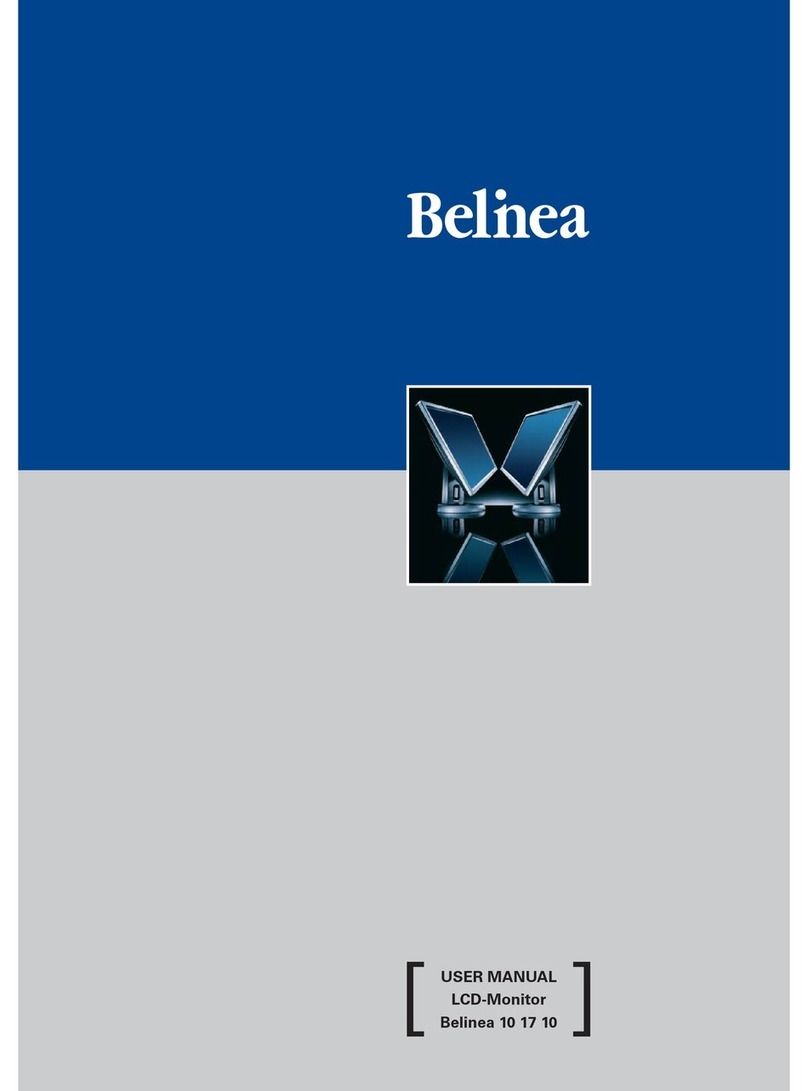
BELINEA
BELINEA 101710 User manual
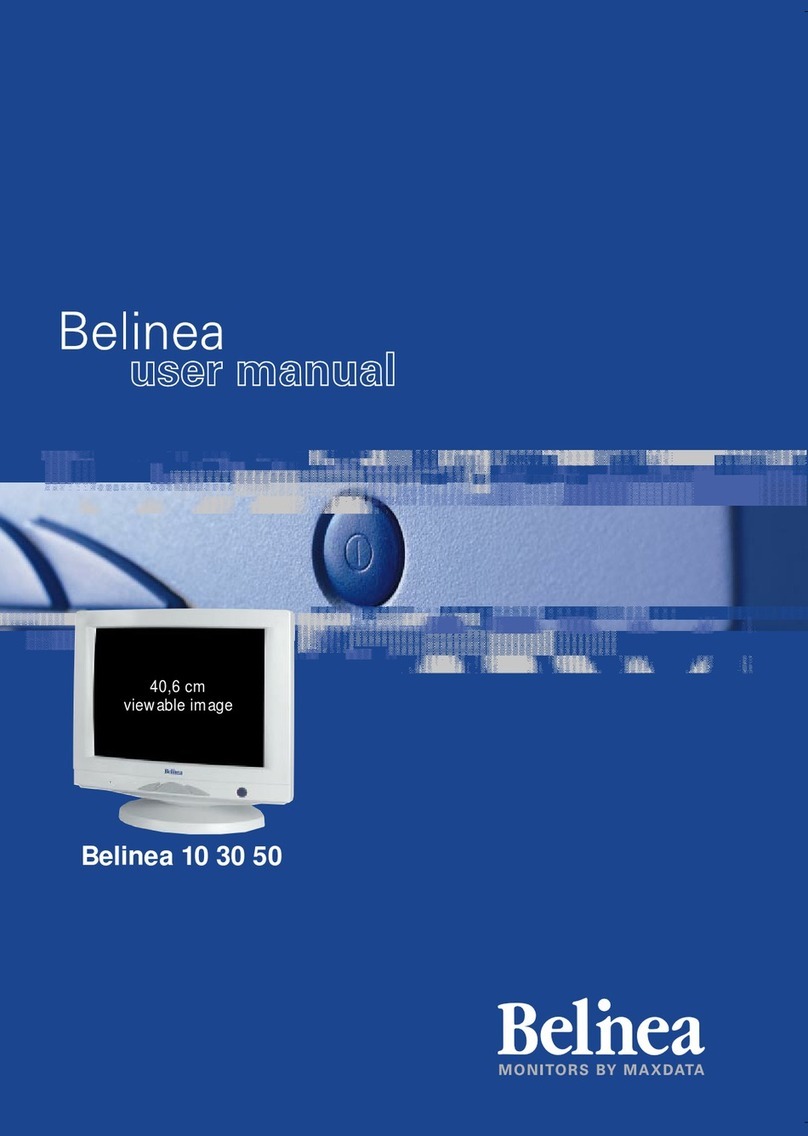
BELINEA
BELINEA 10 30 50 User manual

BELINEA
BELINEA 10 30 55 User manual

BELINEA
BELINEA 10 18 30 User manual
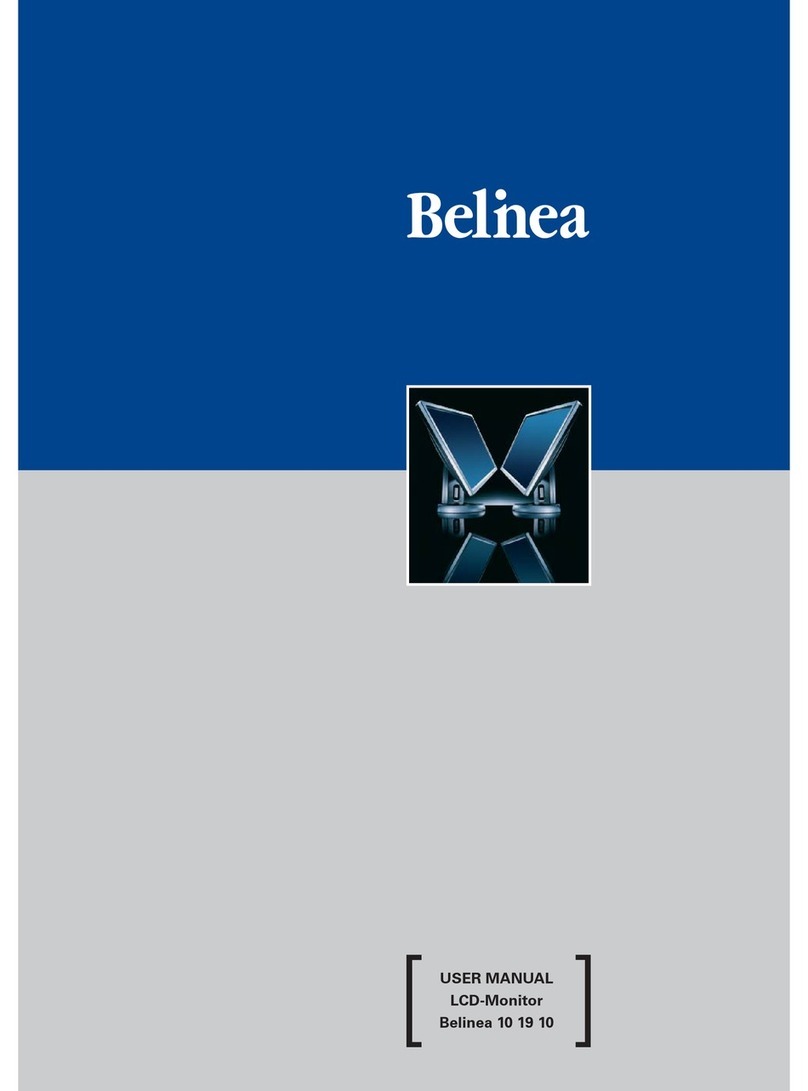
BELINEA
BELINEA 101910 User manual
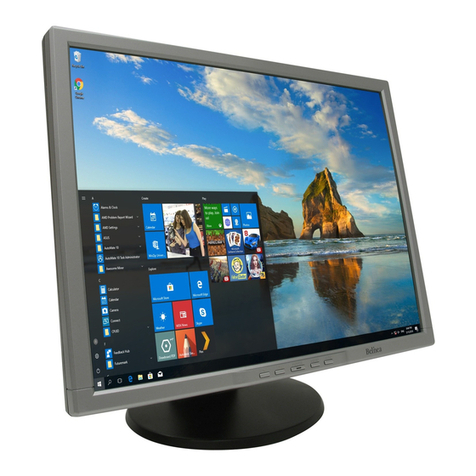
BELINEA
BELINEA 2080 S2 User manual
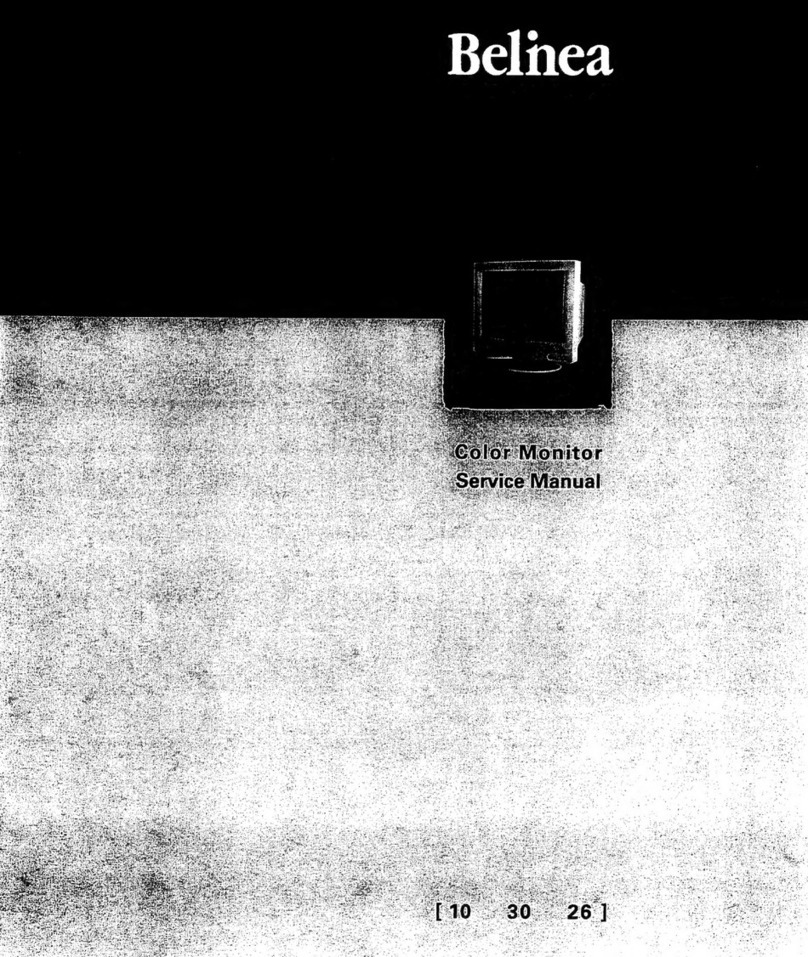
BELINEA
BELINEA 103026 User manual
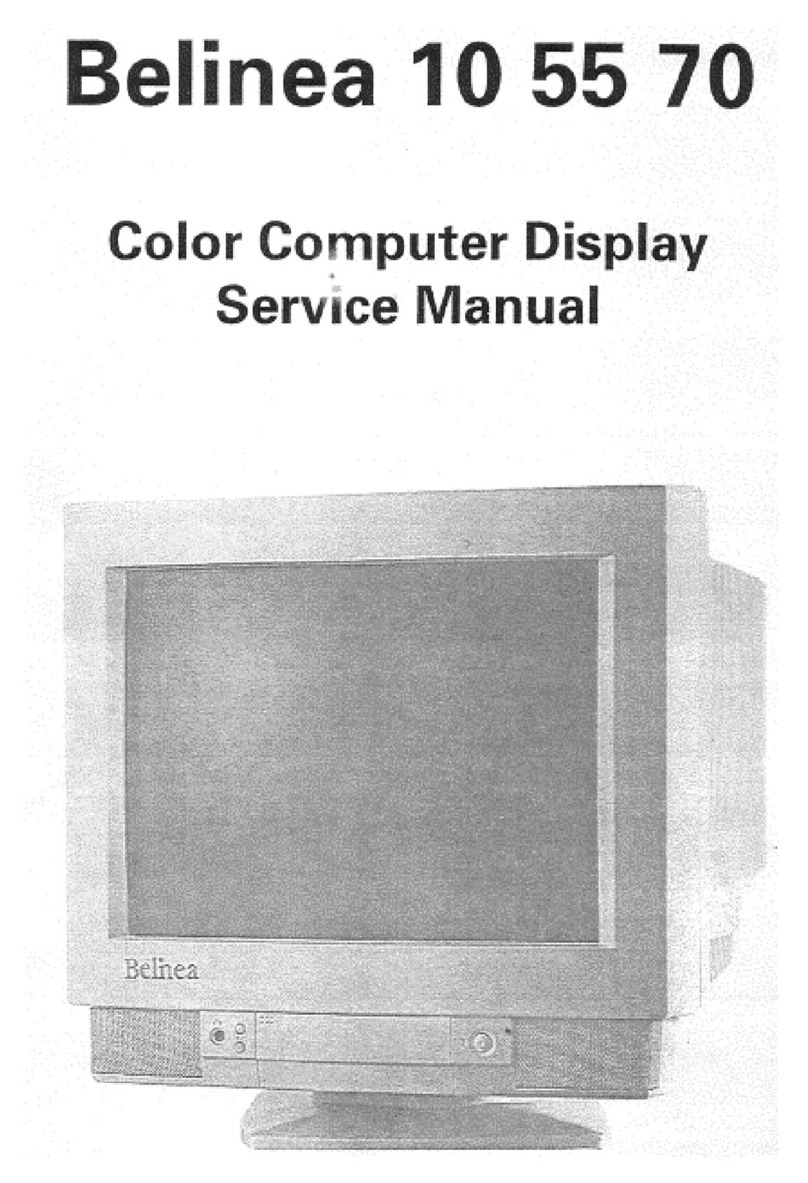
BELINEA
BELINEA 10 55 70 User manual
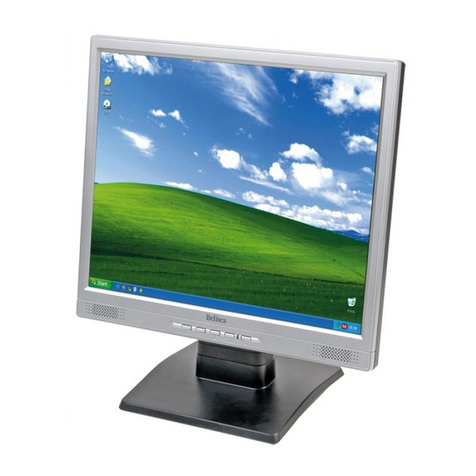
BELINEA
BELINEA 10 17 28 User manual

BELINEA
BELINEA 101910 User manual
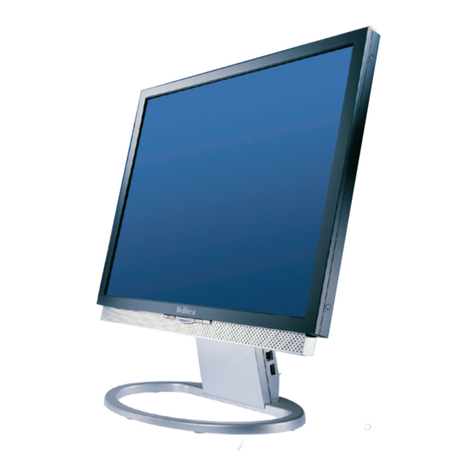
BELINEA
BELINEA 1905 G User manual
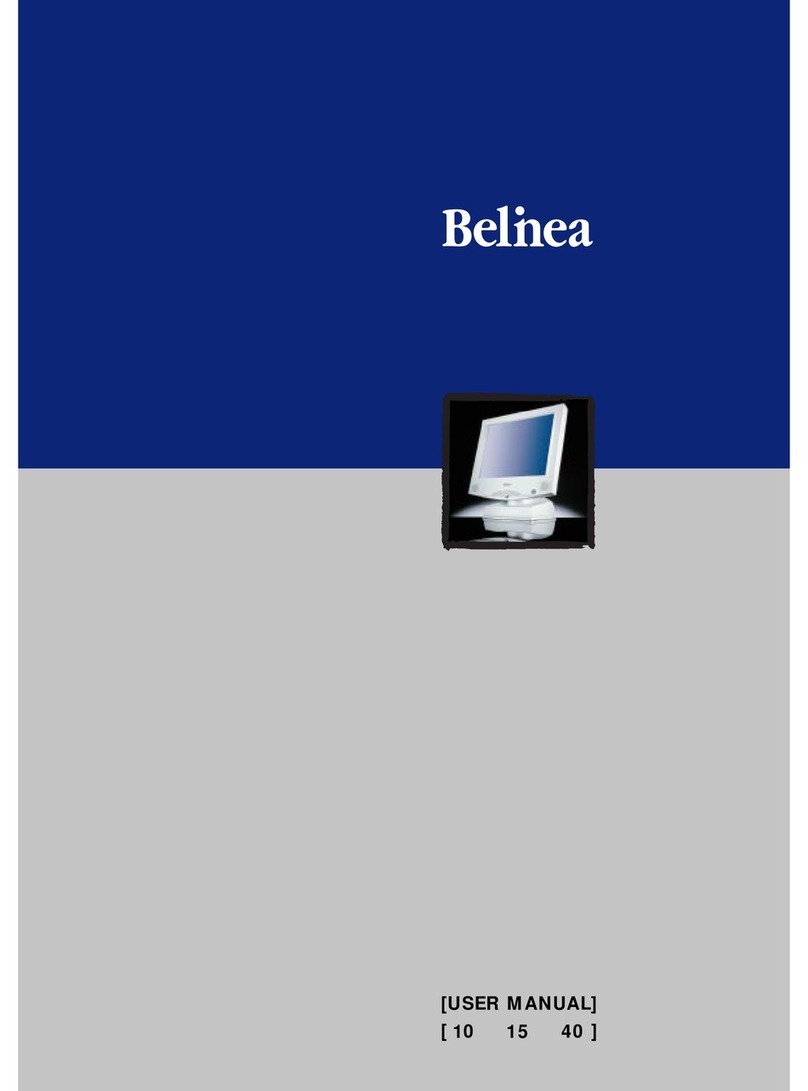
BELINEA
BELINEA 10 User manual
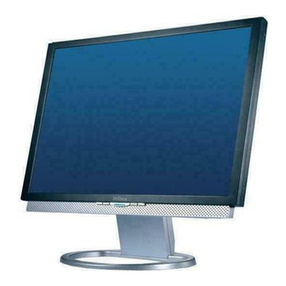
BELINEA
BELINEA 102035W User manual
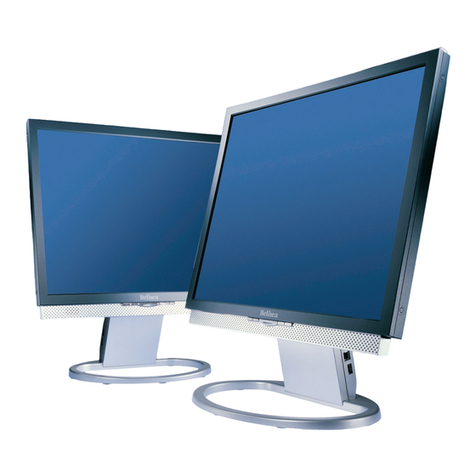
BELINEA
BELINEA 2485 S1W User manual
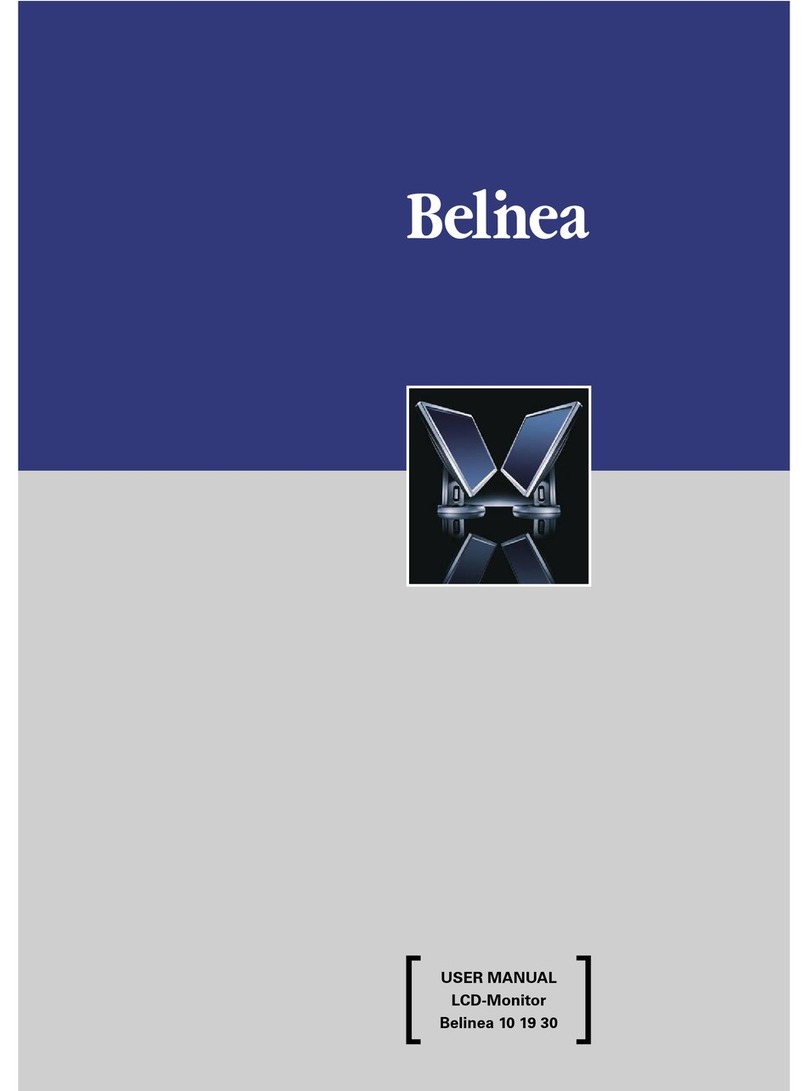
BELINEA
BELINEA 101930 User manual
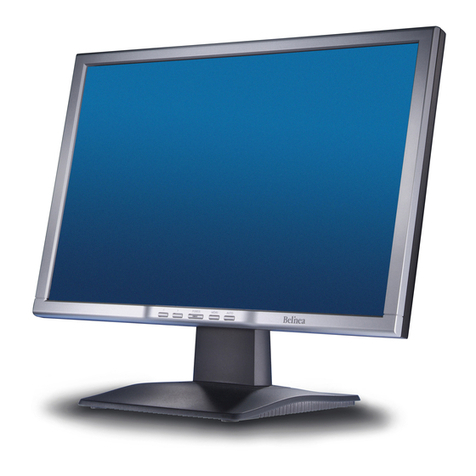
BELINEA
BELINEA 2225 S1W User manual

BELINEA
BELINEA 10 User manual

BELINEA
BELINEA 101927 User manual
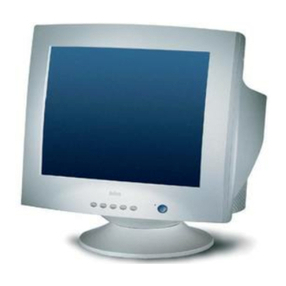
BELINEA
BELINEA CRT-Monitor User manual
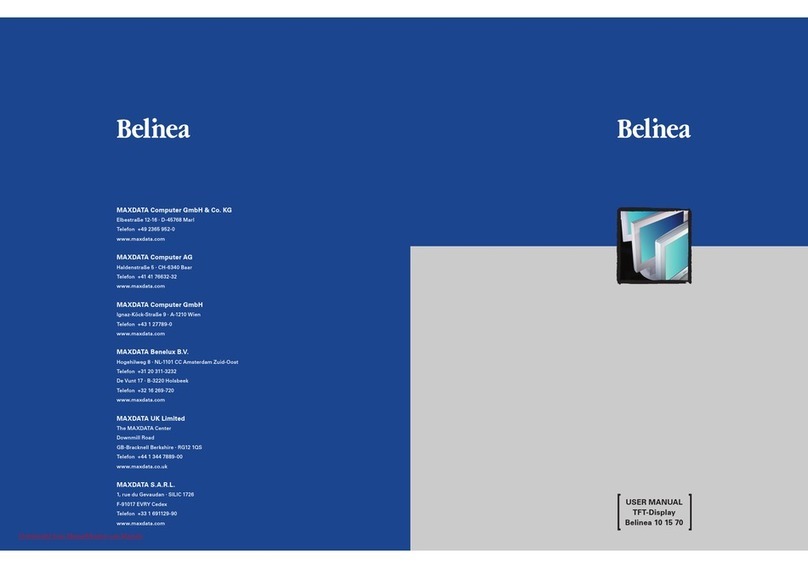
BELINEA
BELINEA 15 User manual
